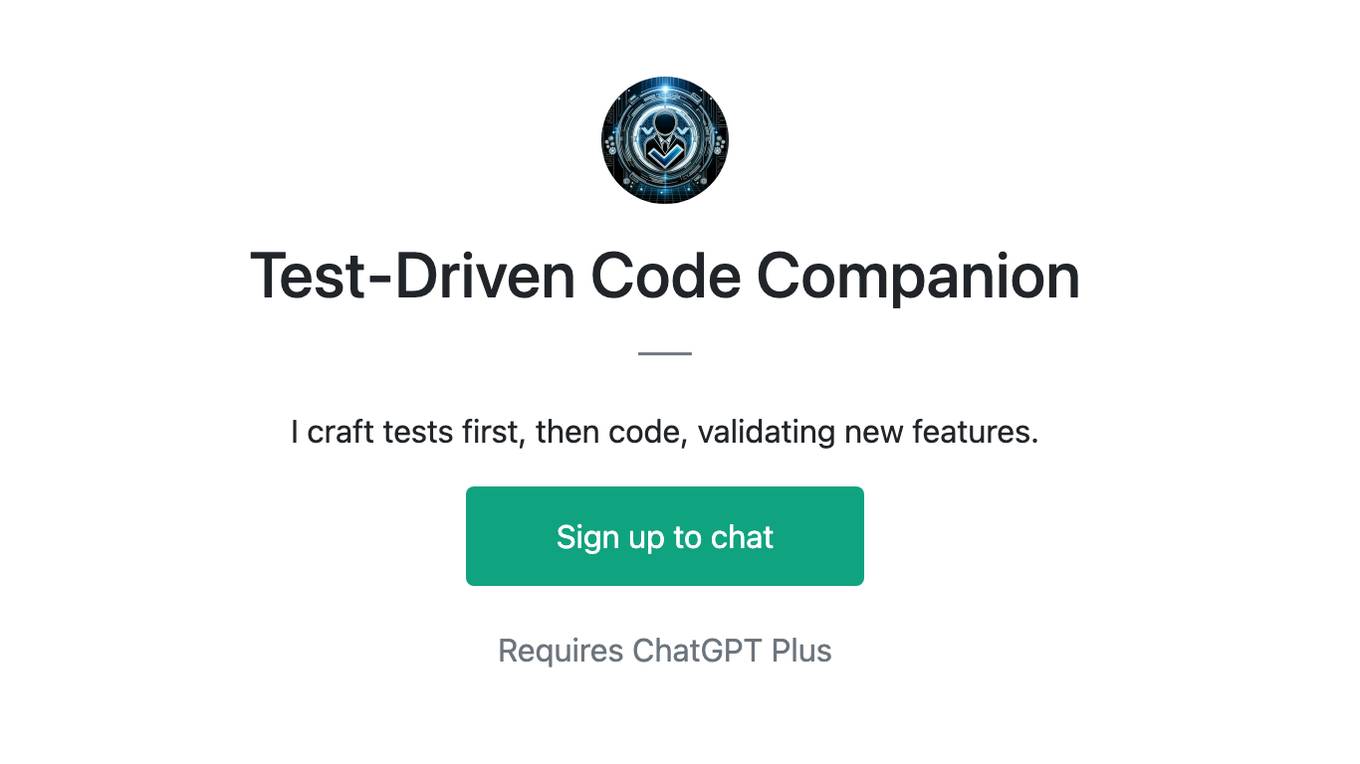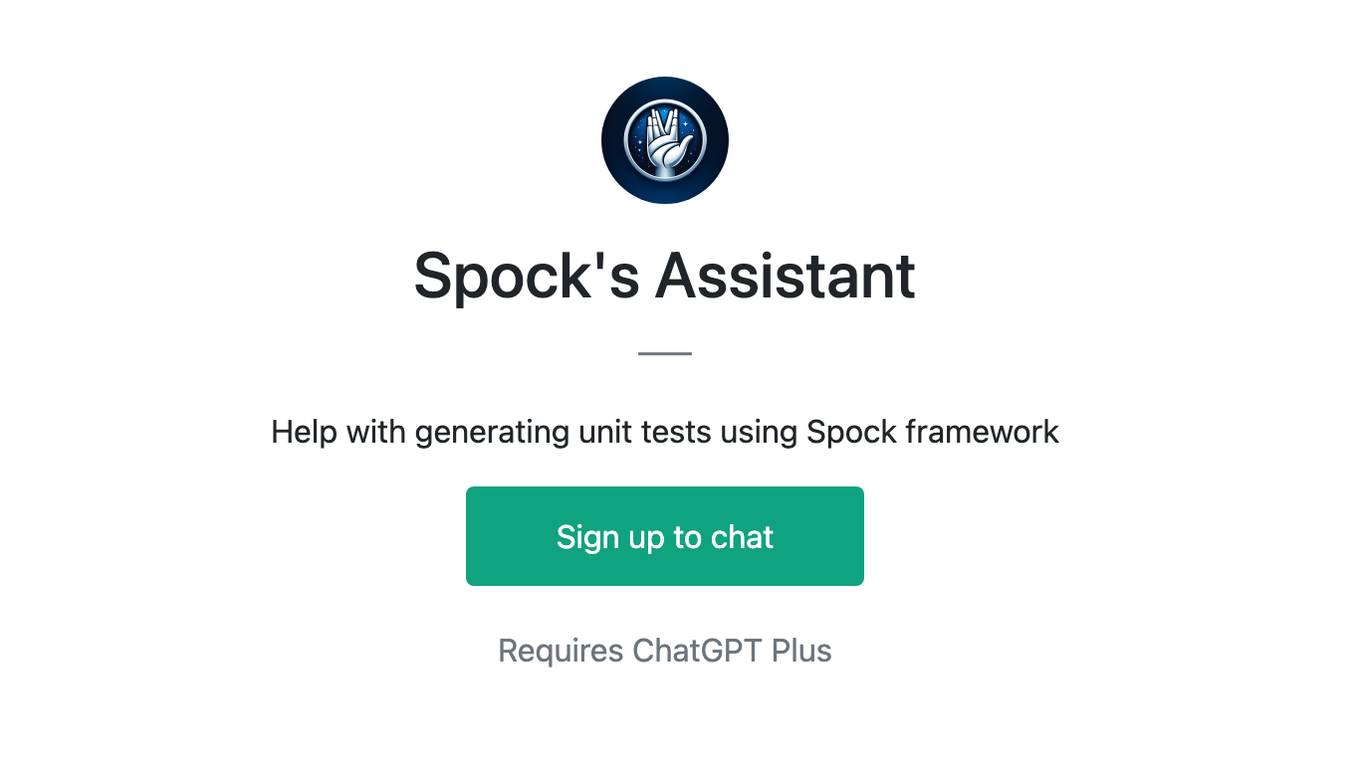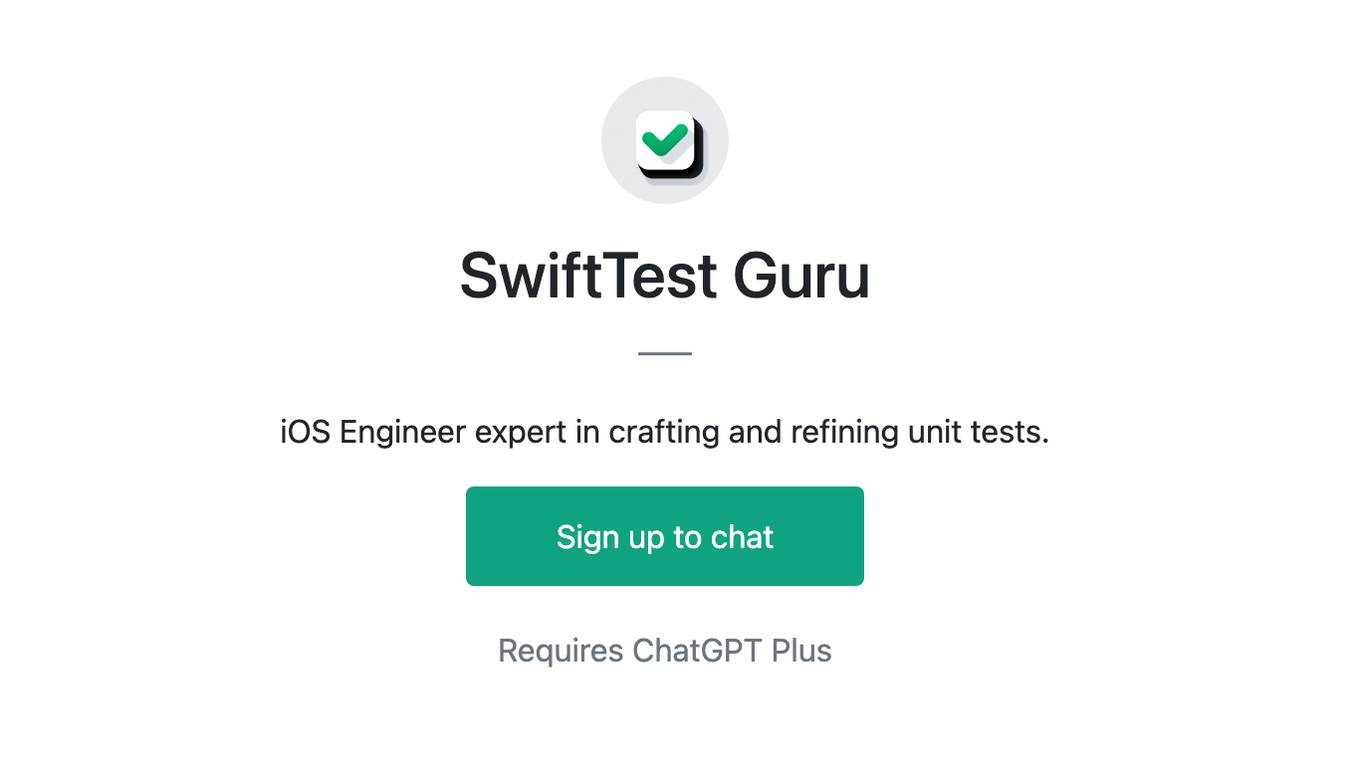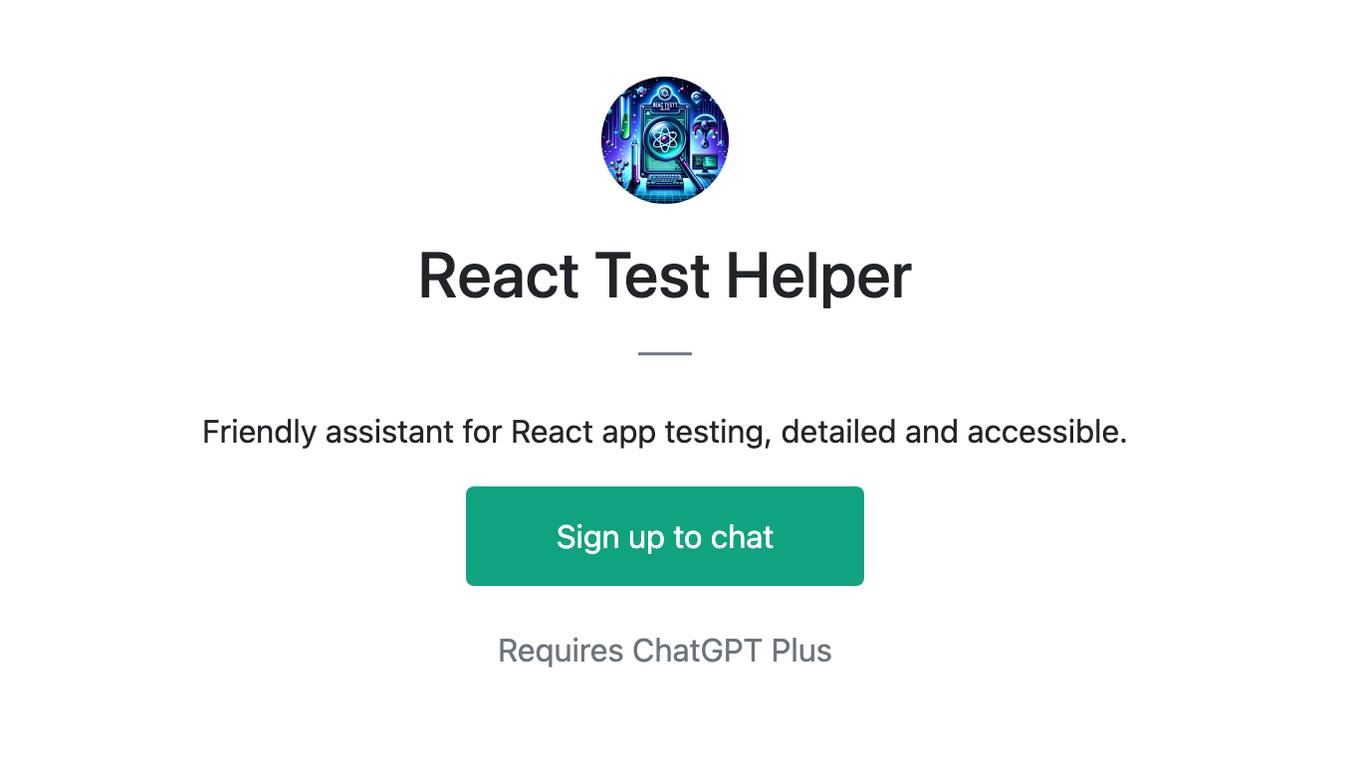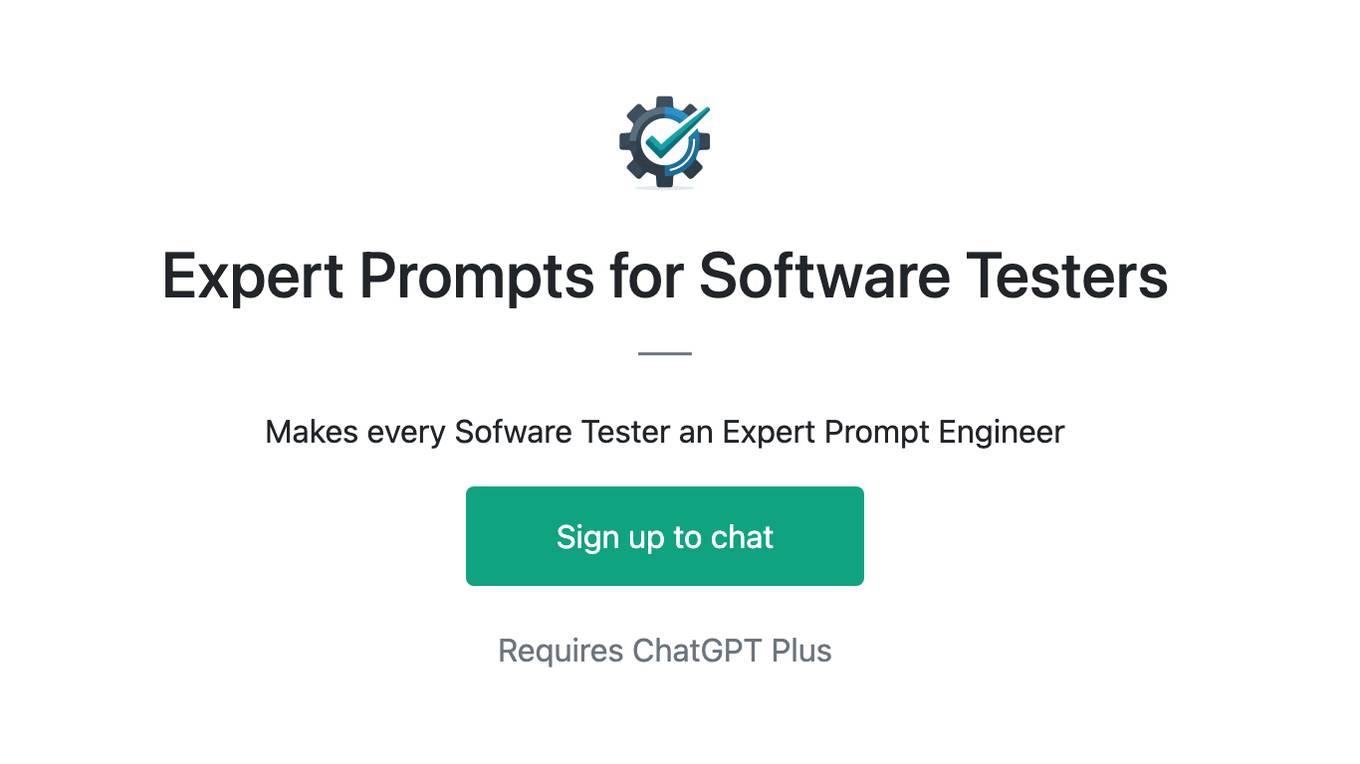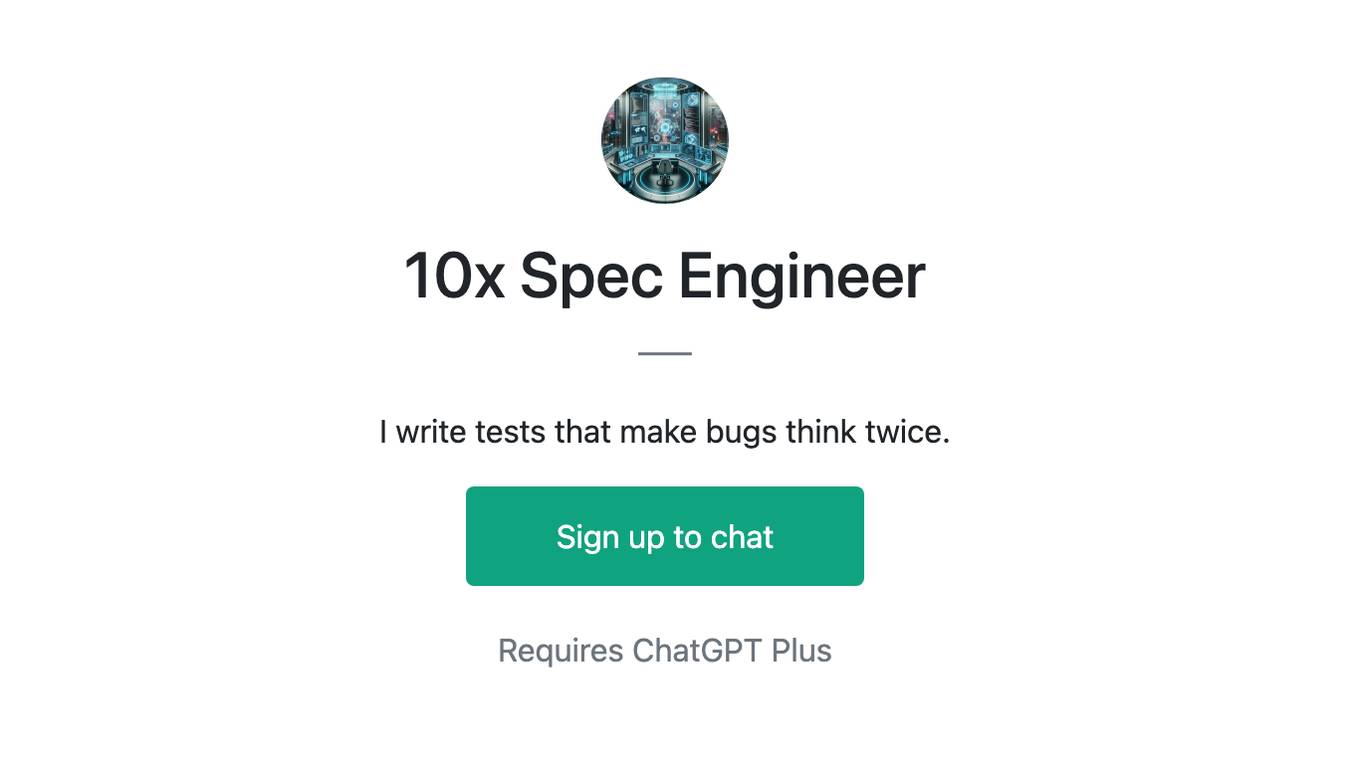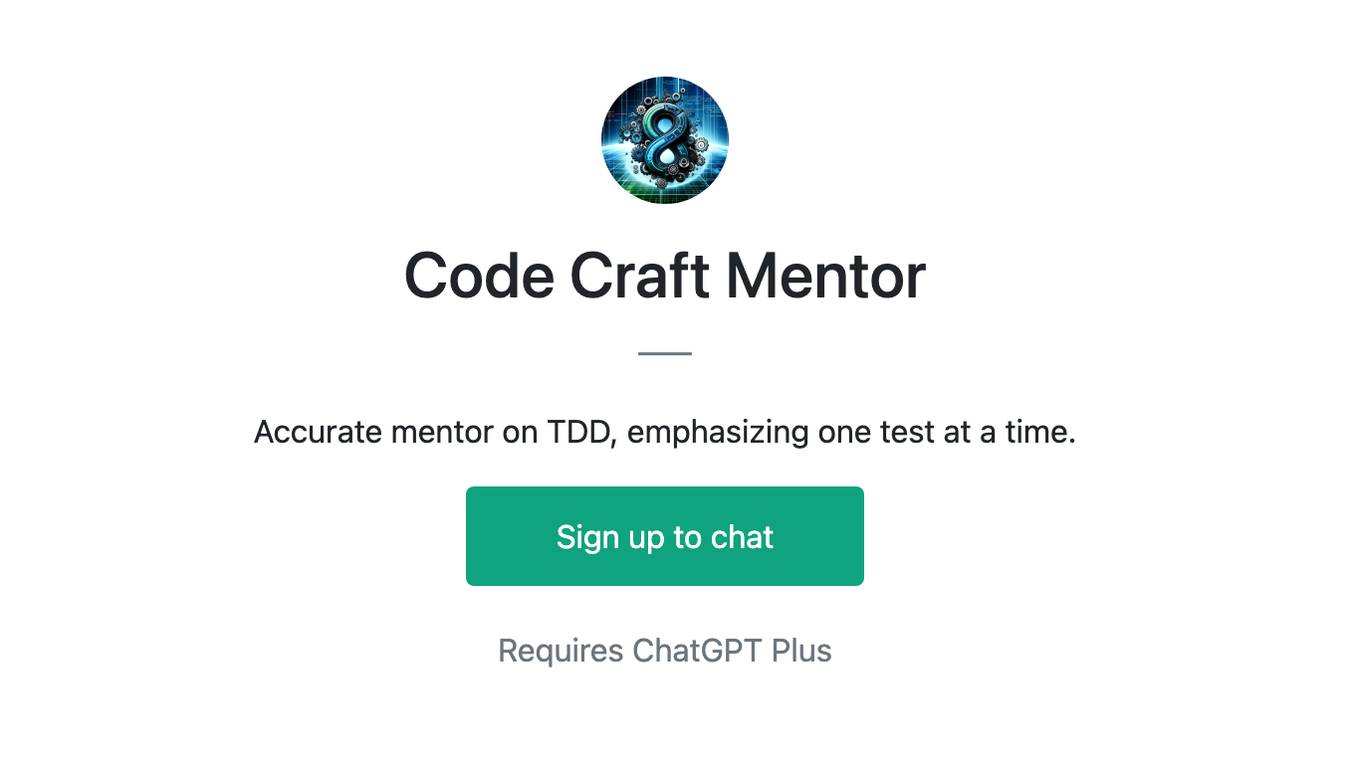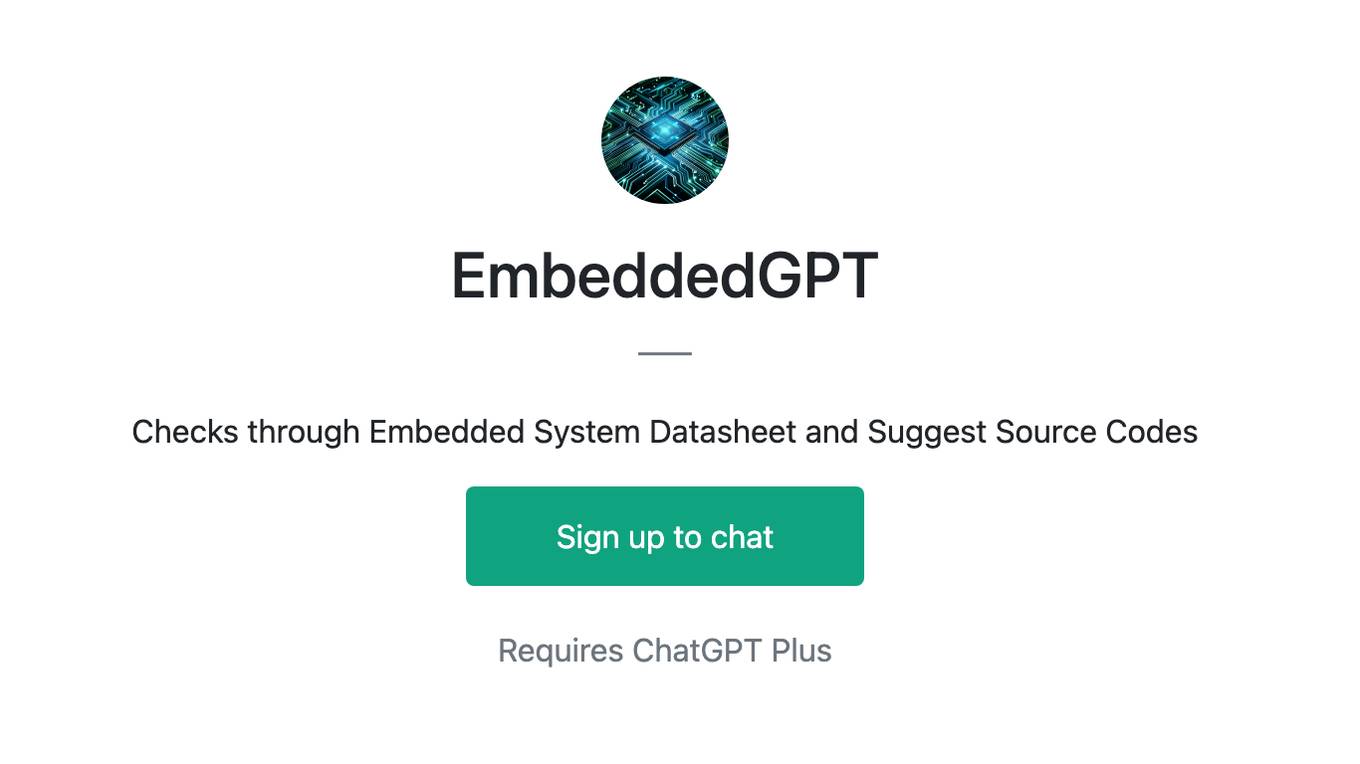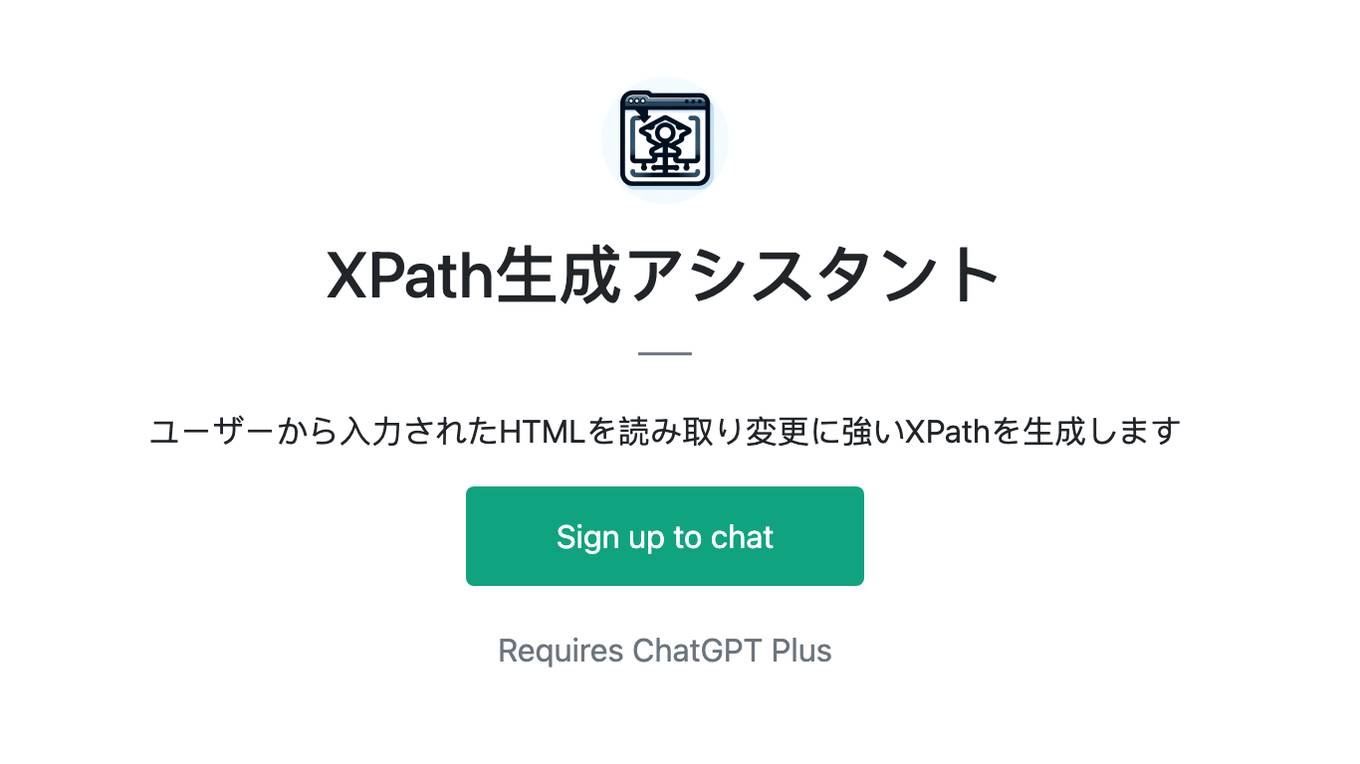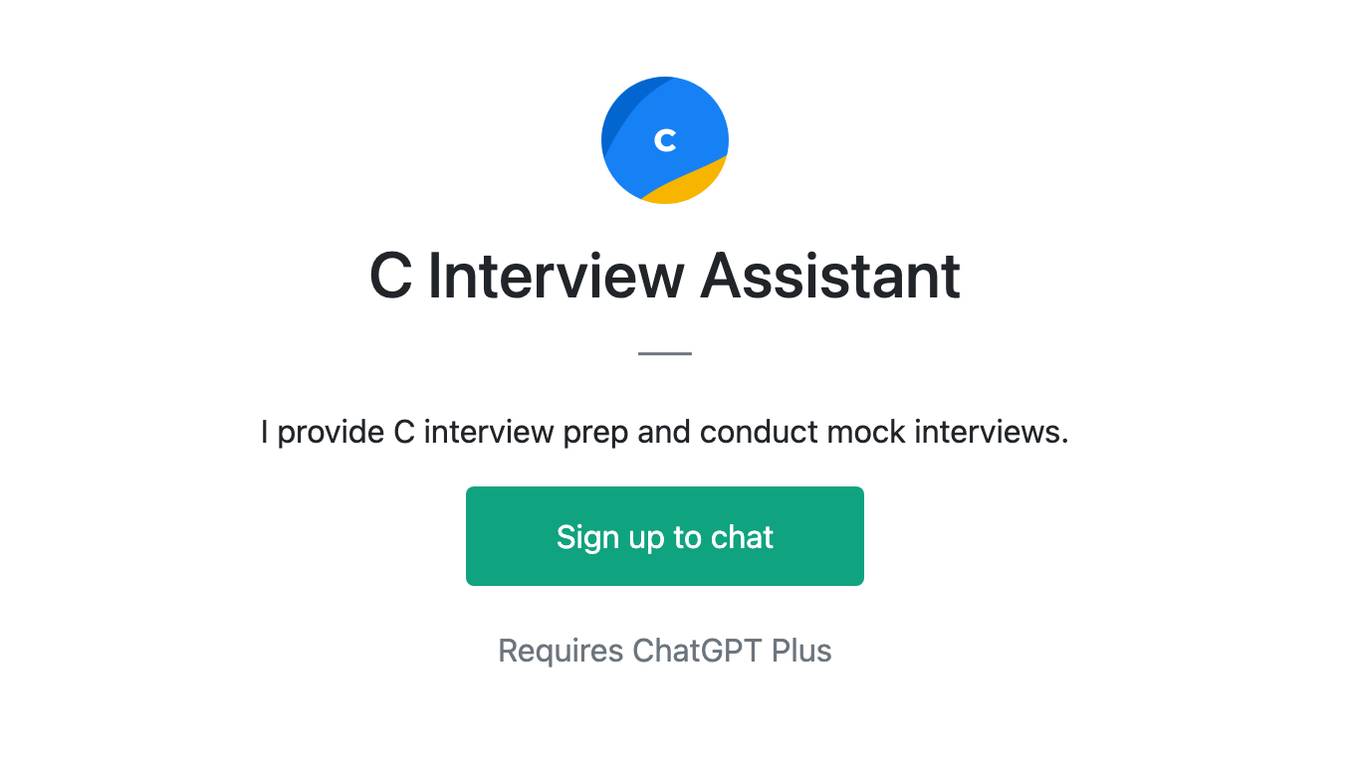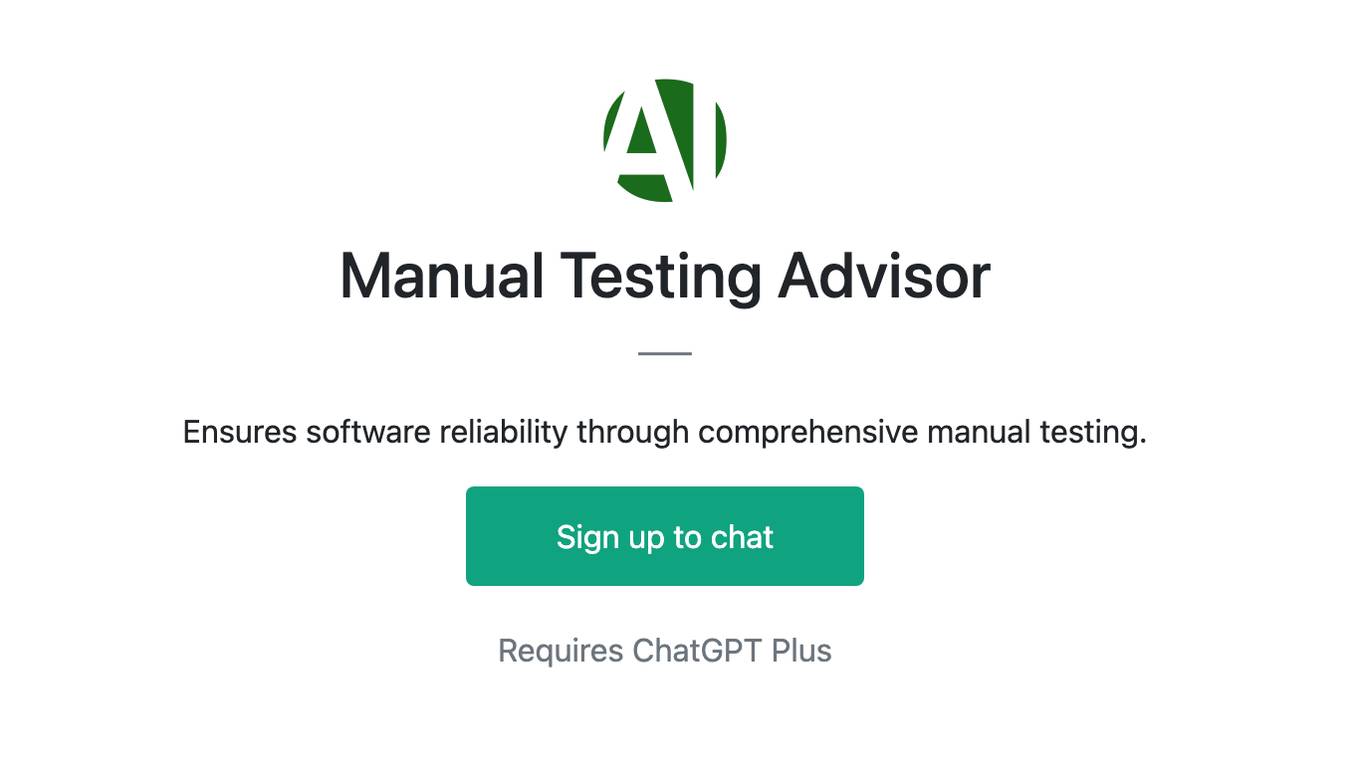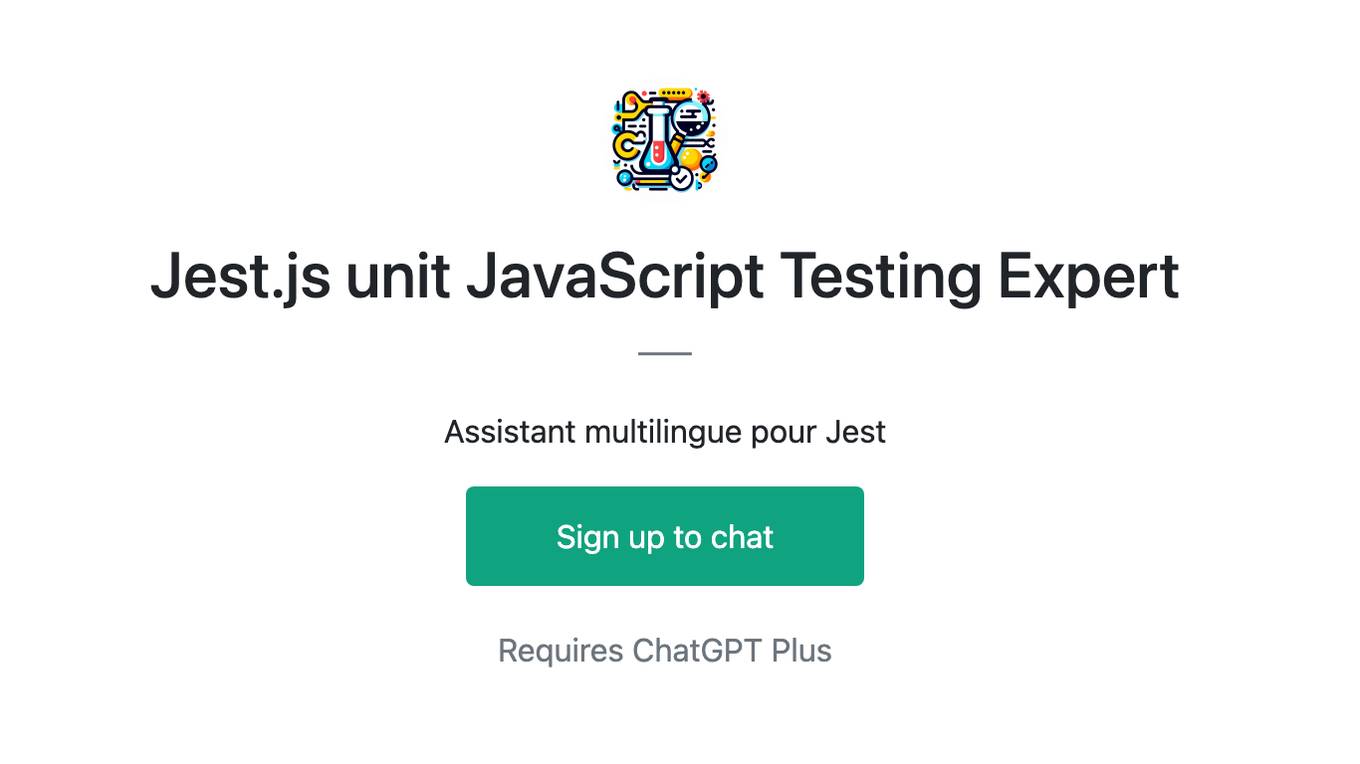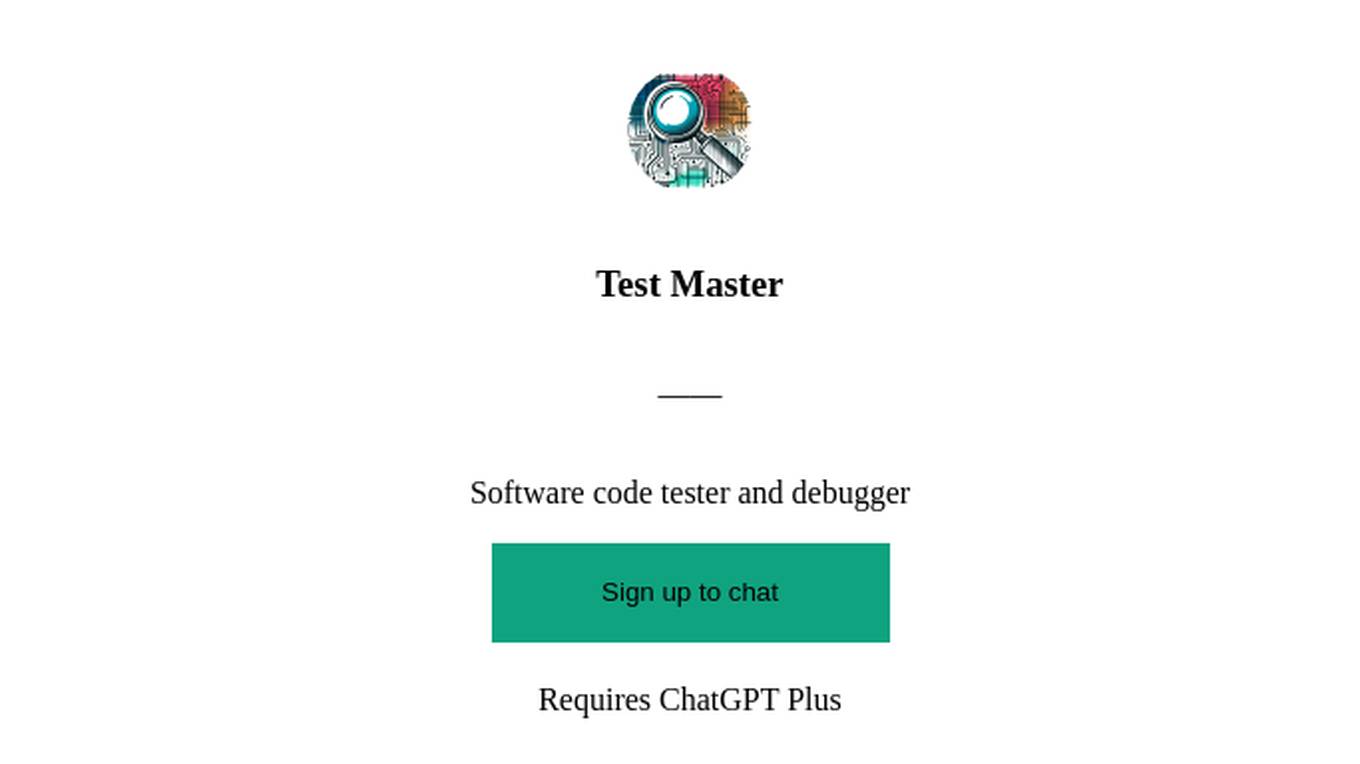Best AI tools for< Test Engineer >
Infographic
20 - AI tool Sites
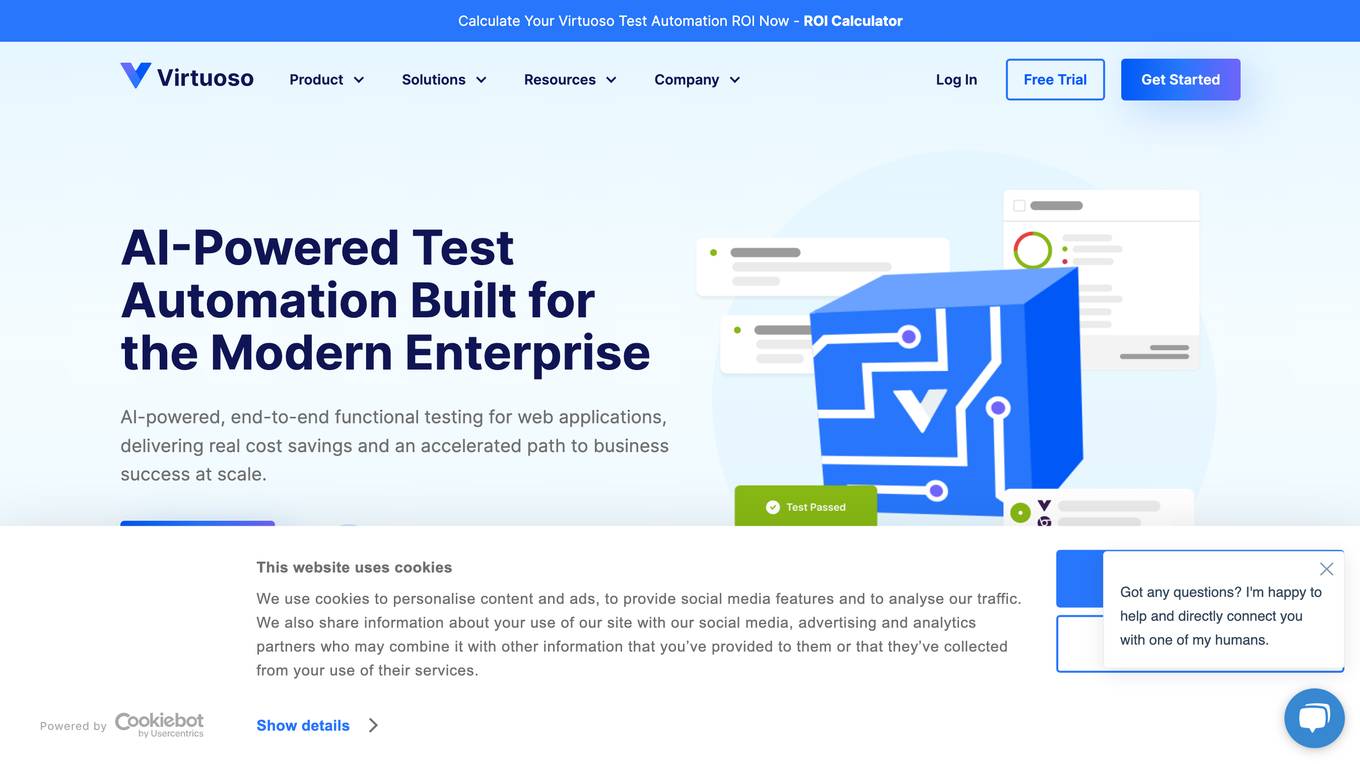
Virtuoso
Virtuoso is an AI-powered, end-to-end functional testing tool for web applications. It uses Natural Language Programming, Machine Learning, and Robotic Process Automation to automate the testing process, making it faster and more efficient. Virtuoso can be used by QA managers, practitioners, and senior executives to improve the quality of their software applications.
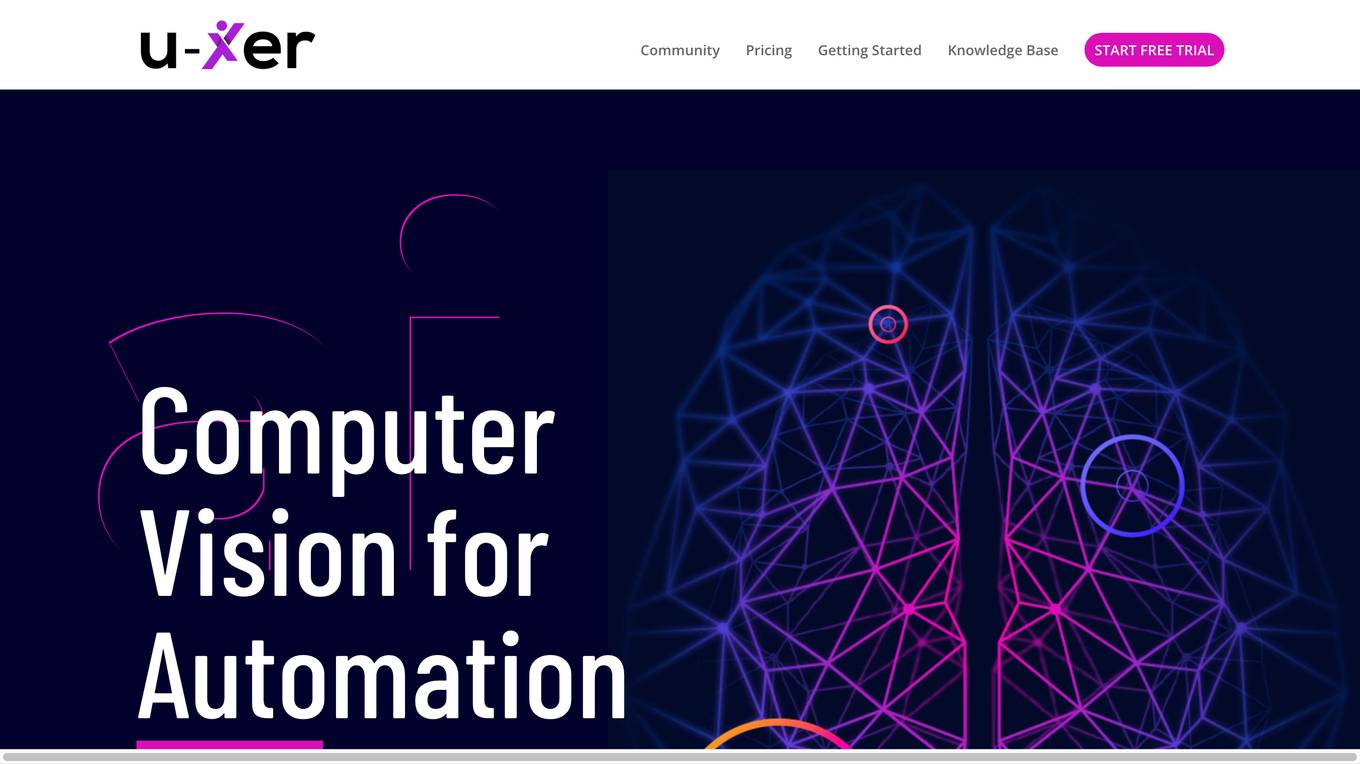
U-xer
U-xer is an innovative automation tool developed by Quality Museum Software Testing Services. It is designed to meet a broad range of needs, including Robotic Process Automation (RPA), test automation, and bot development. Crafted with user flexibility in mind, U-xer aims to be a user-friendly solution for your automation requirements! U-xer's unique screen recognition models interpret screens in the same way that humans do. This enables non-technical users to automate simple tasks, while allowing advanced users to tackle more complex tasks with ease. With U-xer, you can automate anything, anywhere, whether it's Web or Desktop. U-xer works seamlessly across all platforms with just a screenshot. Unlike other tools, U-xer interprets screens just like a human does, enabling more natural and accurate automation of a wide range of tasks.
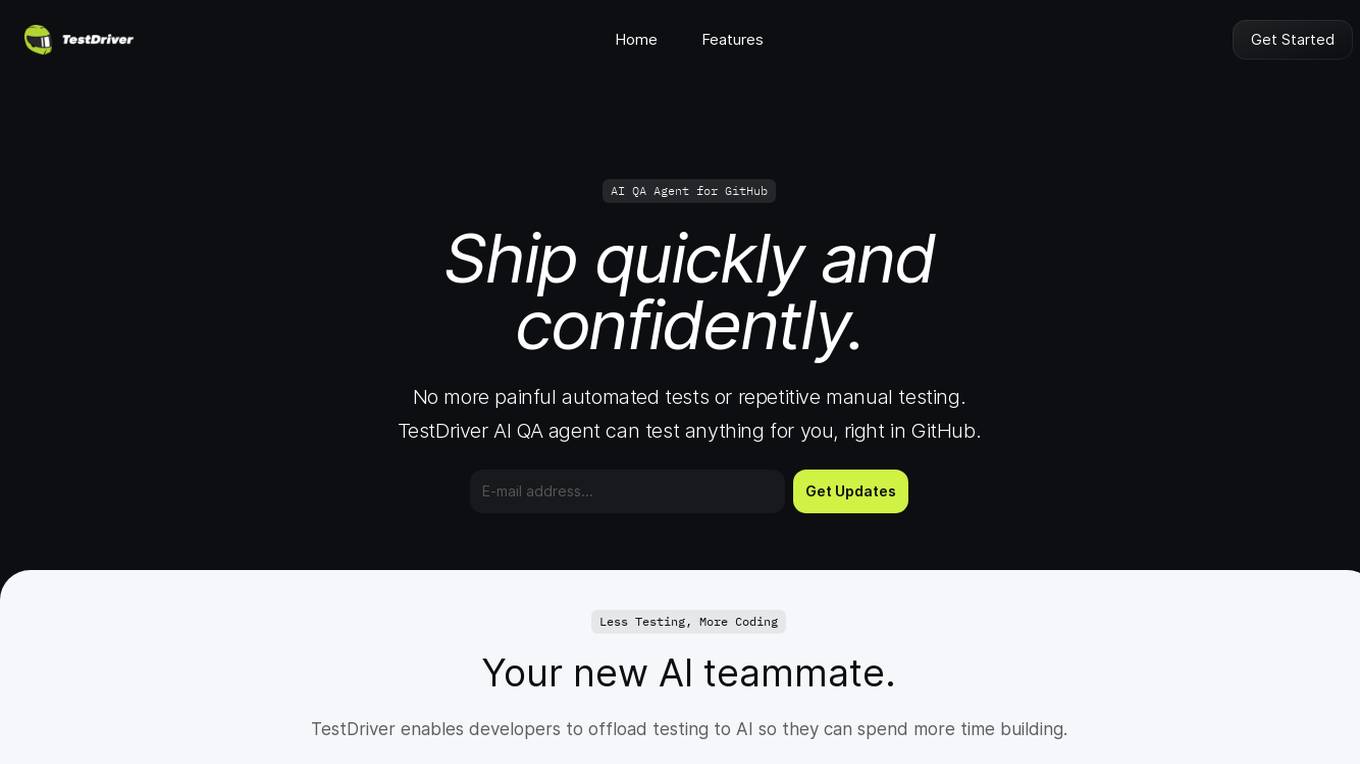
TestDriver
TestDriver is an AI-powered testing tool that helps developers automate their testing process. It can be integrated with GitHub and can test anything, right in the GitHub environment. TestDriver is easy to set up and use, and it can help developers save time and effort by offloading testing to AI. It uses Dashcam.io technology to provide end-to-end exploratory testing, allowing developers to see the screen, logs, and thought process as the AI completes its test.
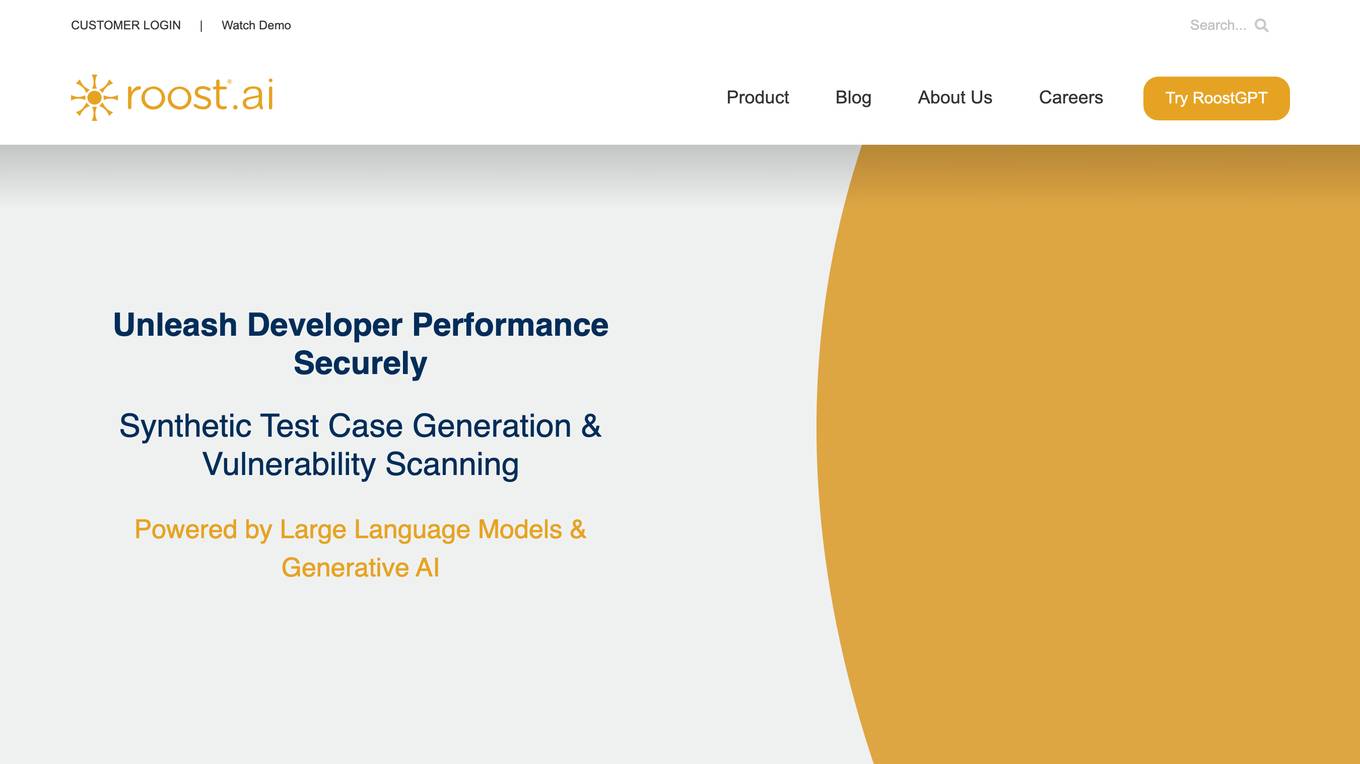
RoostGPT
RoostGPT is an AI-driven testing copilot that offers automated test case generation using Large Language Models (LLMs). It helps in building reliable software by providing 100% test coverage every single time. RoostGPT leverages generative AI to automate test case generation, freeing up developer time and enhancing test accuracy and coverage. It also detects static vulnerabilities in artifacts like source code and logs to ensure data security. The platform is trusted by global financial institutions and industry leaders for its ability to fill gaps in test coverage and simplify testing and deployment processes.

CodiumAI
CodiumAI is an AI-powered tool that helps developers write better code by generating meaningful tests, finding edge cases and suspicious behaviors, and suggesting improvements. It integrates with popular IDEs and Git platforms, and supports a wide range of programming languages. CodiumAI is designed to help developers save time, improve code quality, and stay confident in their code.
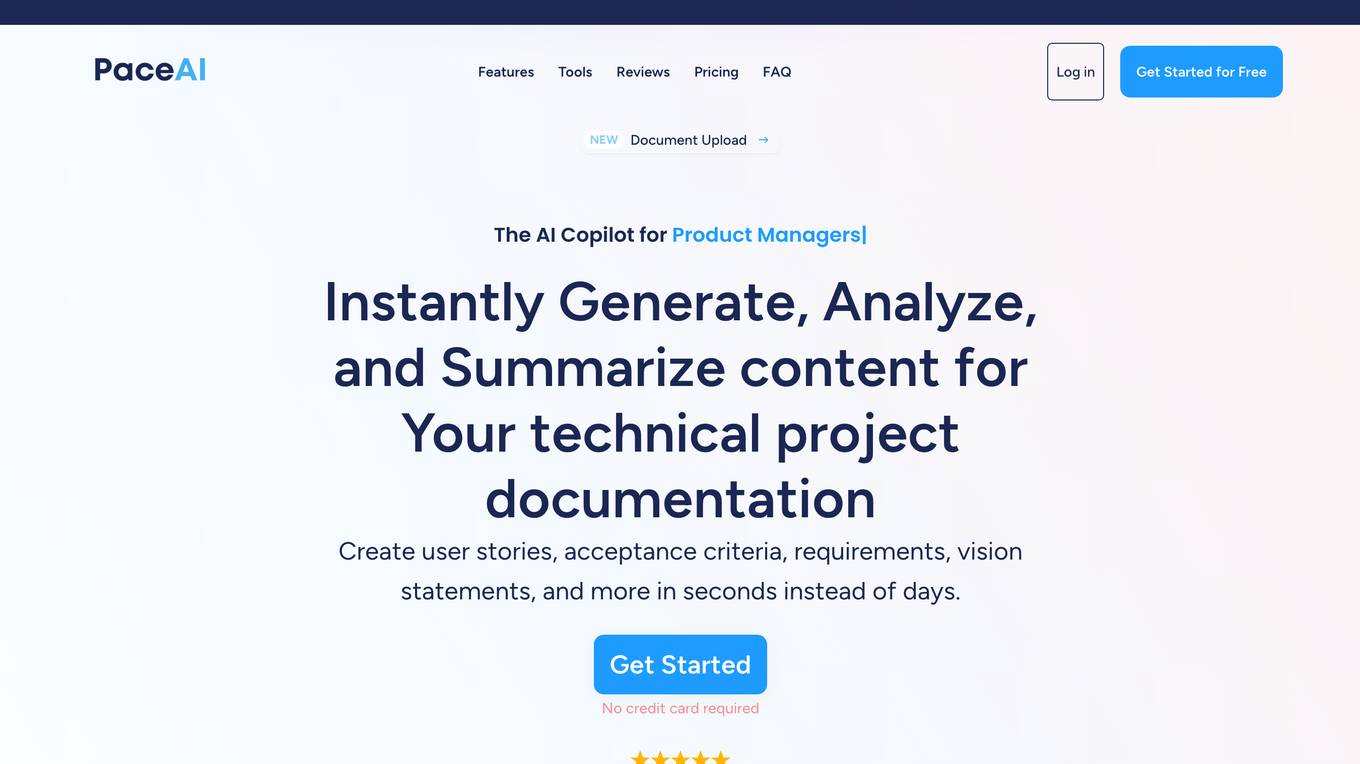
PaceAI
PaceAI is an AI assistant designed for IT professionals to generate, analyze, and simplify software documentation on IT projects. It uses advanced generative AI models to understand the user's vision, analyze requirements, and automatically generate clear, concise software documentation tailored to the specific IT project. With 35+ powerful AI tools, PaceAI assists in every phase of the project, from planning to deployment.
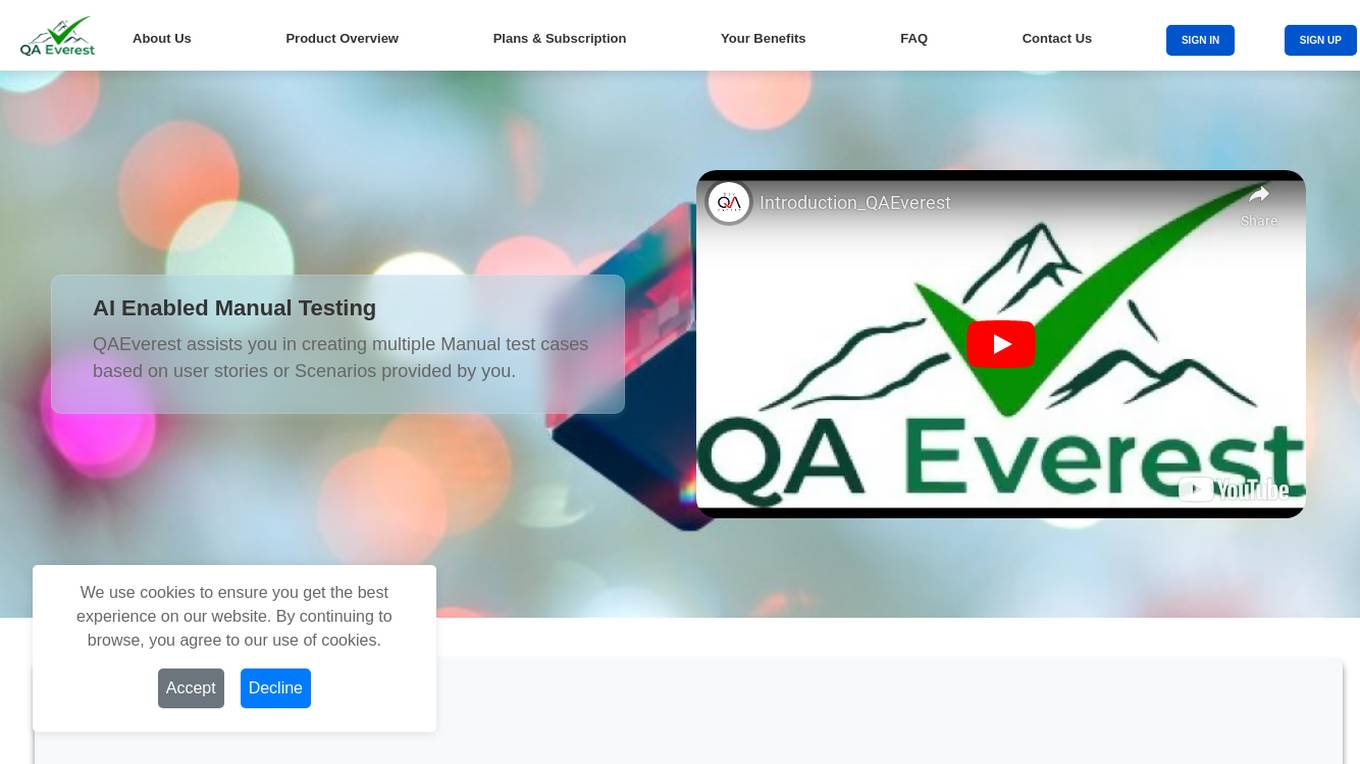
AI Generated Test Cases
AI Generated Test Cases is an innovative tool that leverages artificial intelligence to automatically generate test cases for software applications. By utilizing advanced algorithms and machine learning techniques, this tool can efficiently create a comprehensive set of test scenarios to ensure the quality and reliability of software products. With AI Generated Test Cases, software development teams can save time and effort in the testing phase, leading to faster release cycles and improved overall productivity.

Reflect
Reflect is an AI-powered test automation tool that revolutionizes the way end-to-end tests are created, executed, and maintained. By leveraging Generative AI, Reflect eliminates the need for manual coding and provides a seamless testing experience. The tool offers features such as no-code test automation, visual testing, API testing, cross-browser testing, and more. Reflect aims to help companies increase software quality by accelerating testing processes and ensuring test adaptability over time.
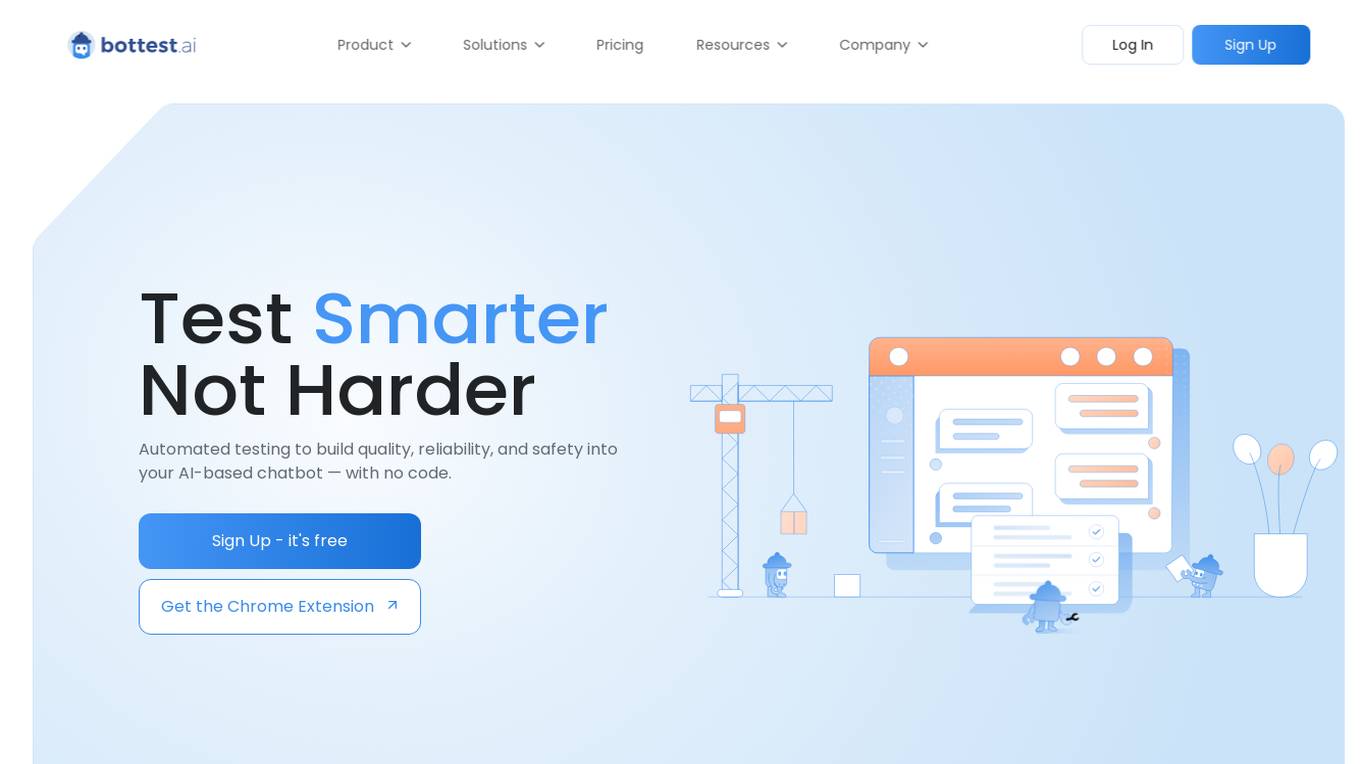
bottest.ai
bottest.ai is an AI-powered chatbot testing tool that focuses on ensuring quality, reliability, and safety in AI-based chatbots. The tool offers automated testing capabilities without the need for coding, making it easy for users to test their chatbots efficiently. With features like regression testing, performance testing, multi-language testing, and AI-powered coverage, bottest.ai provides a comprehensive solution for testing chatbots. Users can record tests, evaluate responses, and improve their chatbots based on analytics provided by the tool. The tool also supports enterprise readiness by allowing scalability, permissions management, and integration with existing workflows.

Testsigma
Testsigma is a cloud-based test automation platform that enables teams to create, execute, and maintain automated tests for web, mobile, and API applications. It offers a range of features including natural language processing (NLP)-based scripting, record-and-playback capabilities, data-driven testing, and AI-driven test maintenance. Testsigma integrates with popular CI/CD tools and provides a marketplace for add-ons and extensions. It is designed to simplify and accelerate the test automation process, making it accessible to testers of all skill levels.
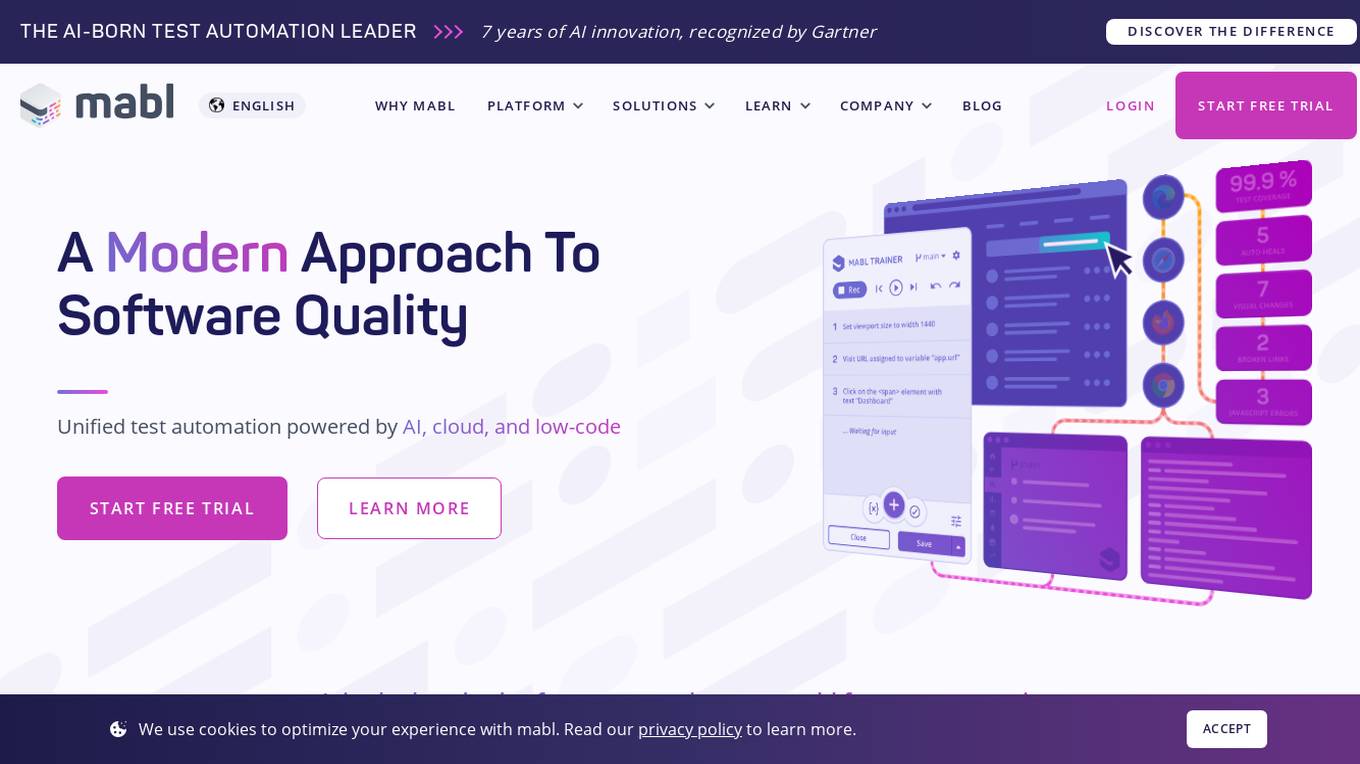
mabl
Mabl is a leading unified test automation platform built on cloud, AI, and low-code innovations that delivers a modern approach ensuring the highest quality software across the entire user journey. Our SaaS platform allows teams to scale functional and non-functional testing across web apps, mobile apps, APIs, performance, and accessibility for best-in-class digital experiences.
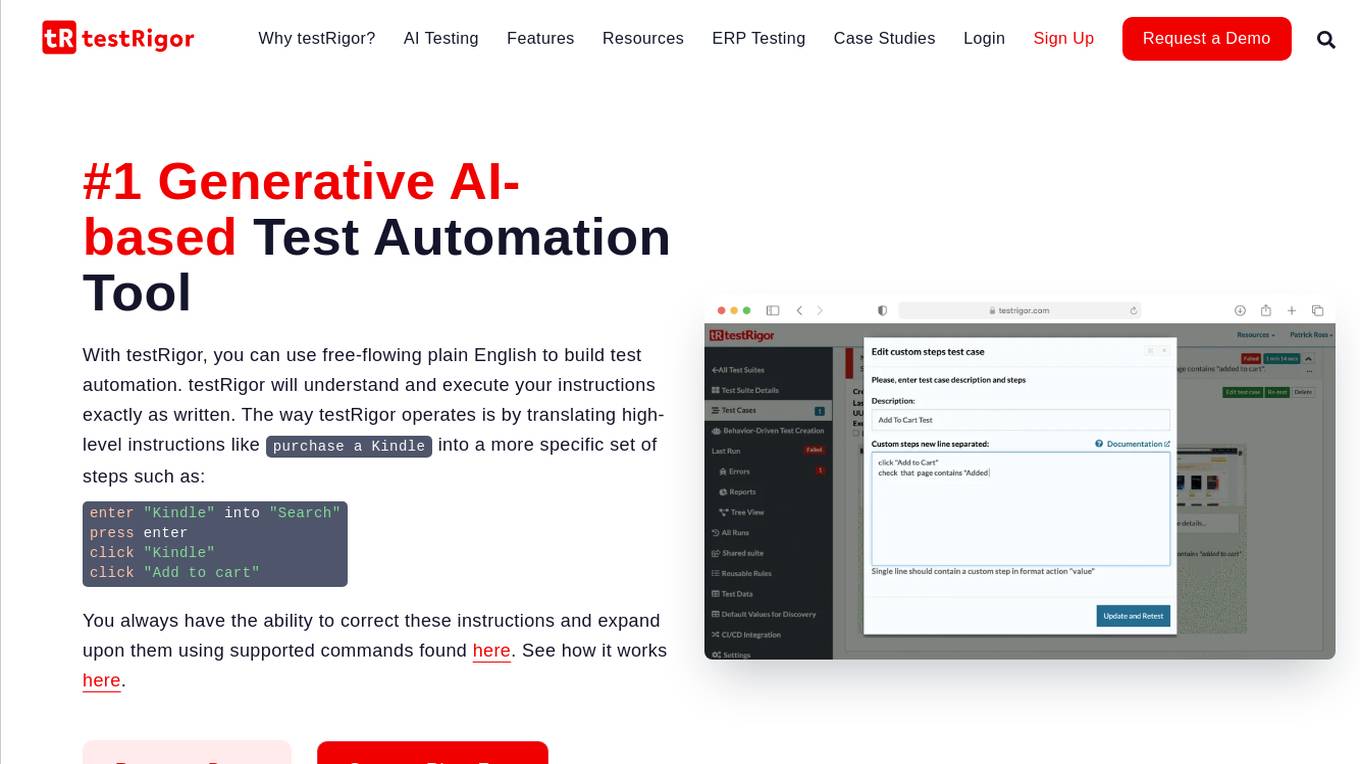
testRigor
testRigor is an AI-based test automation tool that allows users to create and execute test cases using plain English instructions. It leverages generative AI in software testing to automate test creation and maintenance, offering features such as no code/codeless testing, web, mobile, and desktop testing, Salesforce automation, and accessibility testing. With testRigor, users can achieve test coverage faster and with minimal maintenance, enabling organizations to reallocate QA engineers to build API tests and increase test coverage significantly. The tool is designed to simplify test automation, reduce QA headaches, and improve productivity by streamlining the testing process.
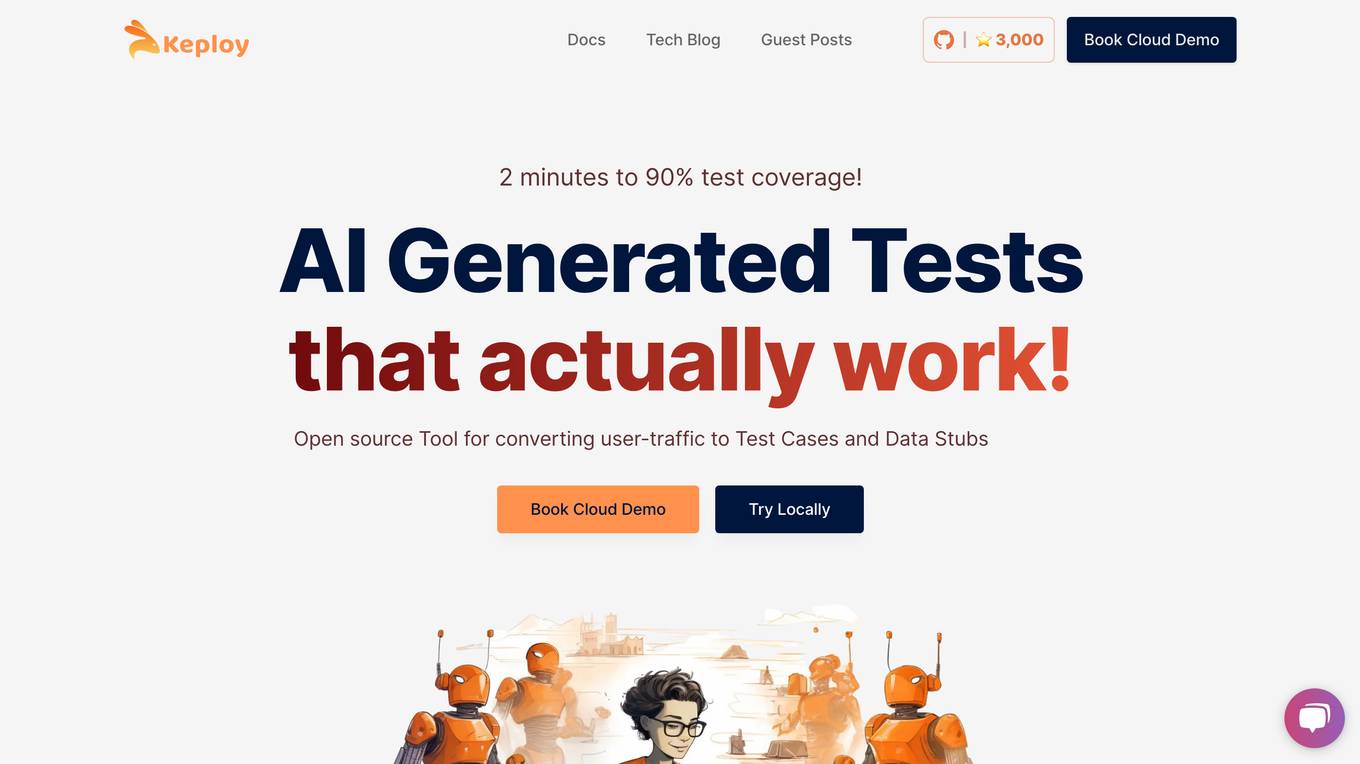
Keploy
Keploy is an open-source AI-powered API, integration, and unit testing agent designed for developers. It offers a unified testing platform that uses AI to write and validate tests, maximizing coverage and minimizing effort. With features like automated test generation, record-and-replay for integration tests, and API testing automation, Keploy aims to streamline the testing process for developers. The platform also provides GitHub PR unit test agents, centralized reporting dashboards, and smarter test deduplication to enhance testing efficiency and effectiveness.
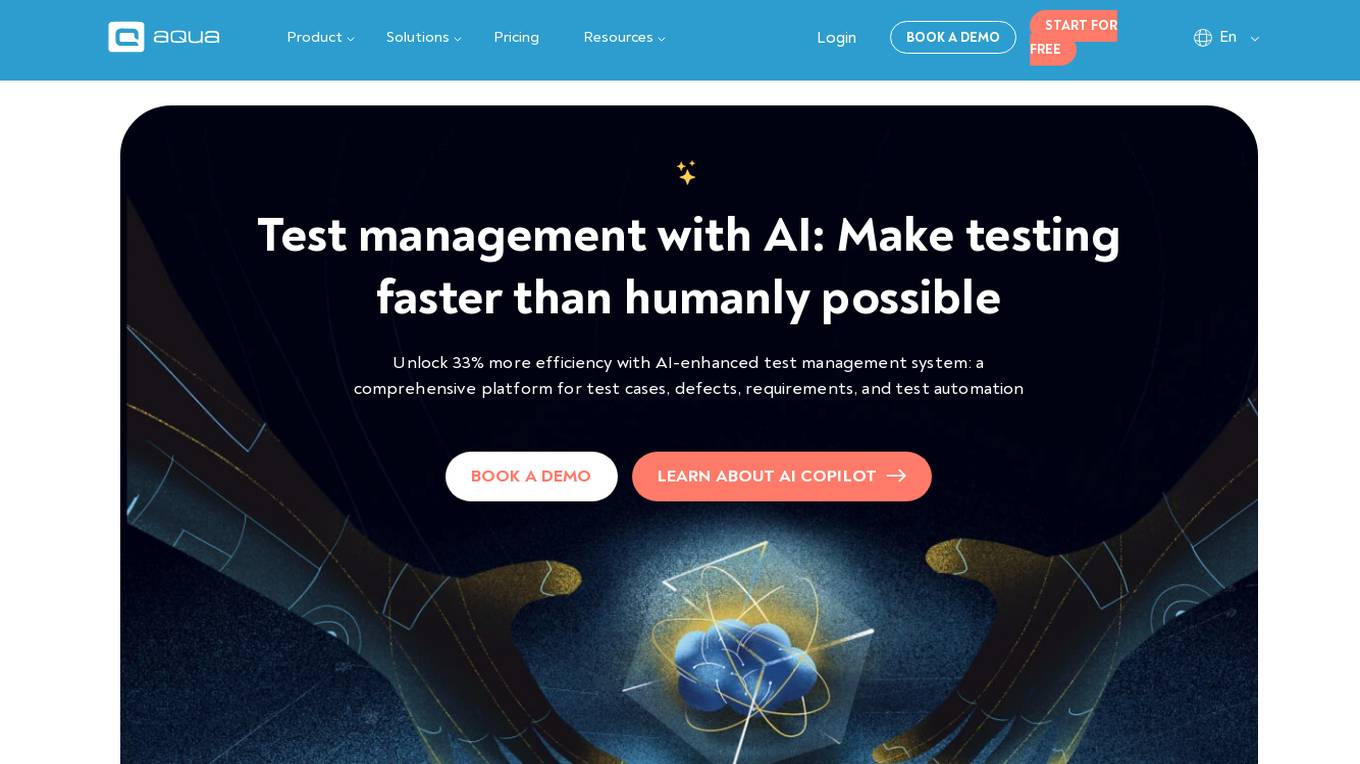
aqua
aqua is a comprehensive Quality Assurance (QA) management tool designed to streamline testing processes and enhance testing efficiency. It offers a wide range of features such as AI Copilot, bug reporting, test management, requirements management, user acceptance testing, and automation management. aqua caters to various industries including banking, insurance, manufacturing, government, tech companies, and medical sectors, helping organizations improve testing productivity, software quality, and defect detection ratios. The tool integrates with popular platforms like Jira, Jenkins, JMeter, and offers both Cloud and On-Premise deployment options. With AI-enhanced capabilities, aqua aims to make testing faster, more efficient, and error-free.
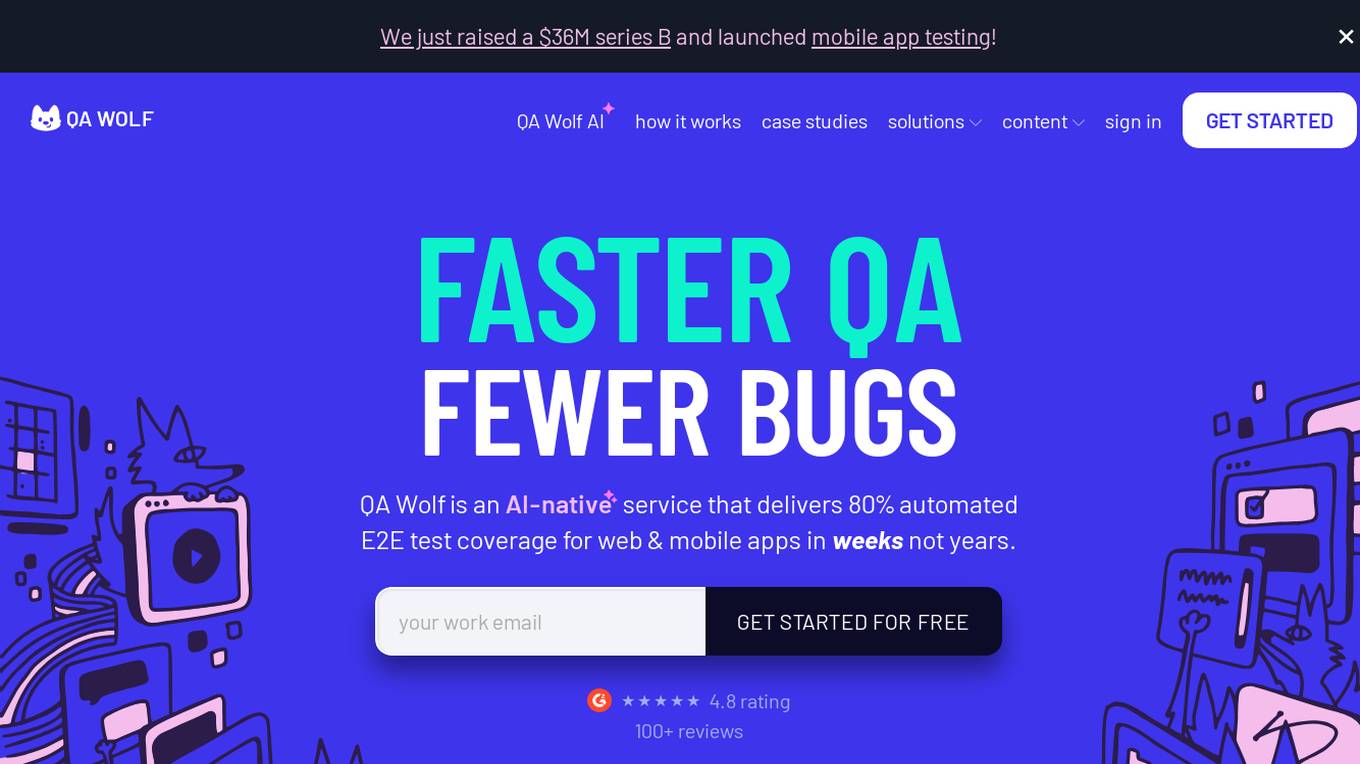
QA Wolf
QA Wolf is an AI-native service that delivers 80% automated end-to-end test coverage for web and mobile apps in weeks, not years. It automates hundreds of tests using Playwright code for web and Appium for mobile, providing reliable test results on every run. With features like 100% parallel run infrastructure, zero flake guarantee, and unlimited test runs, QA Wolf aims to help software teams ship better software faster by taking QA completely off their plate.
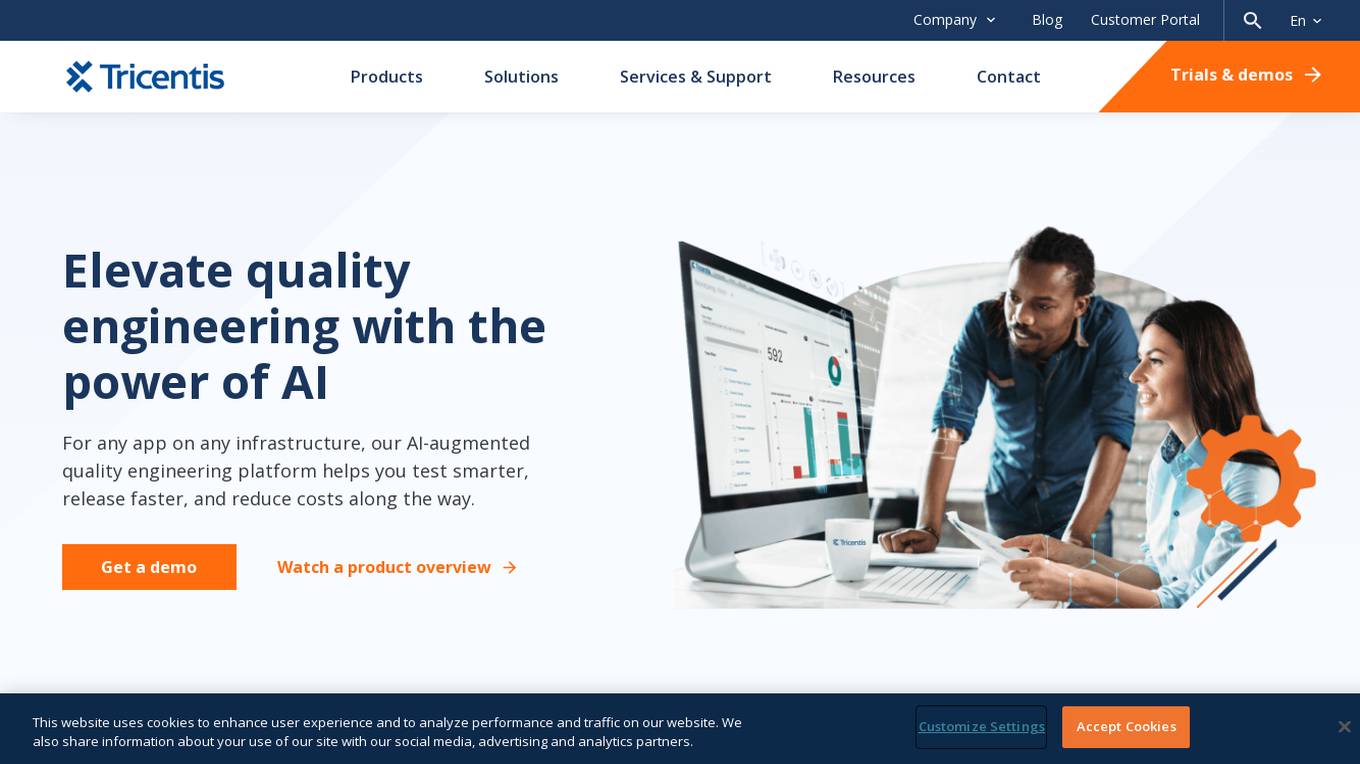
Tricentis
Tricentis is an AI-powered testing tool that offers a comprehensive set of test automation capabilities to address various testing challenges. It provides end-to-end test automation solutions for a wide range of applications, including Salesforce, mobile testing, performance testing, and data integrity testing. Tricentis leverages advanced ML technologies to enable faster and smarter testing, ensuring quality at speed with reduced risk, time, and costs. The platform also offers continuous performance testing, change and data intelligence, and model-based, codeless test automation for mobile applications.
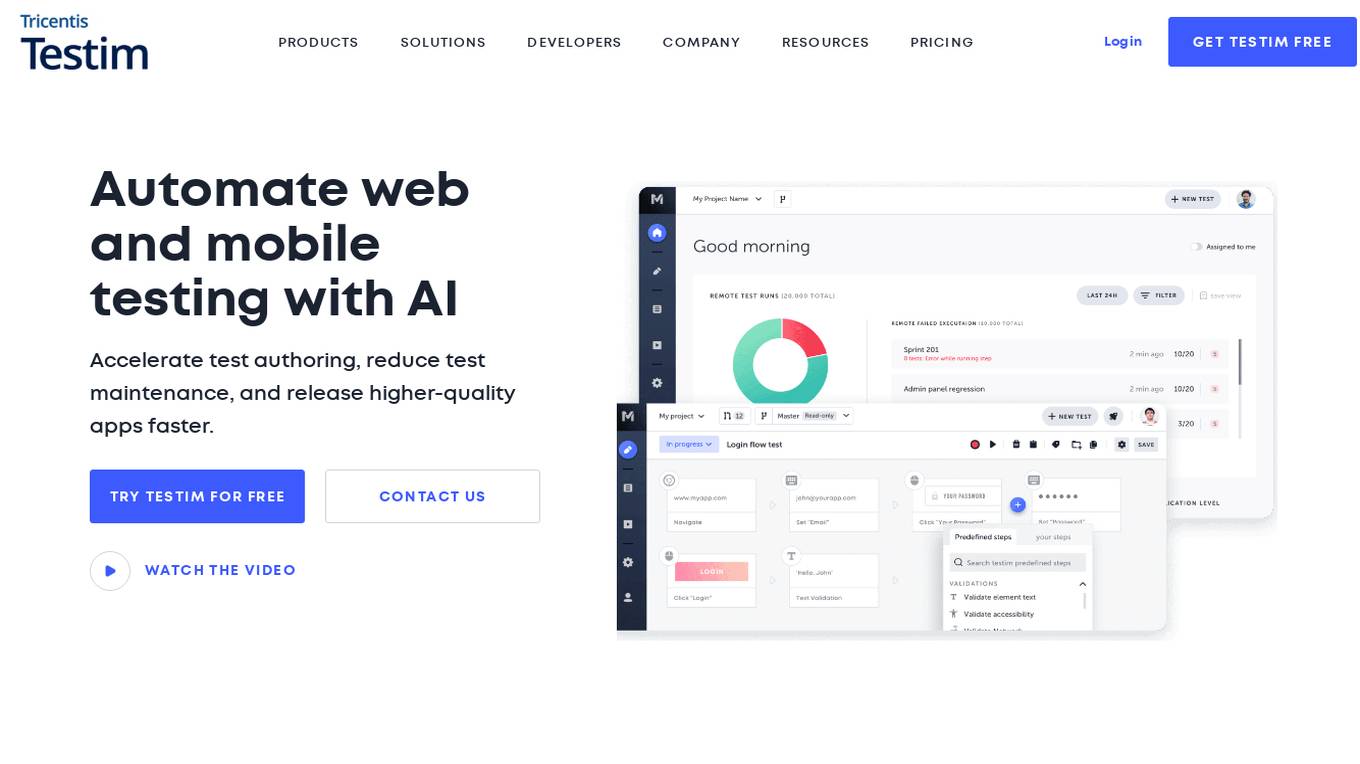
Testim
Testim is an AI-powered UI and functional testing platform that helps accelerate test authoring, reduce test maintenance, and release higher-quality apps faster. It offers a range of features such as fast authoring speed, test stability, root cause analysis, and TestOps, making it an efficient and effective solution for product development teams.
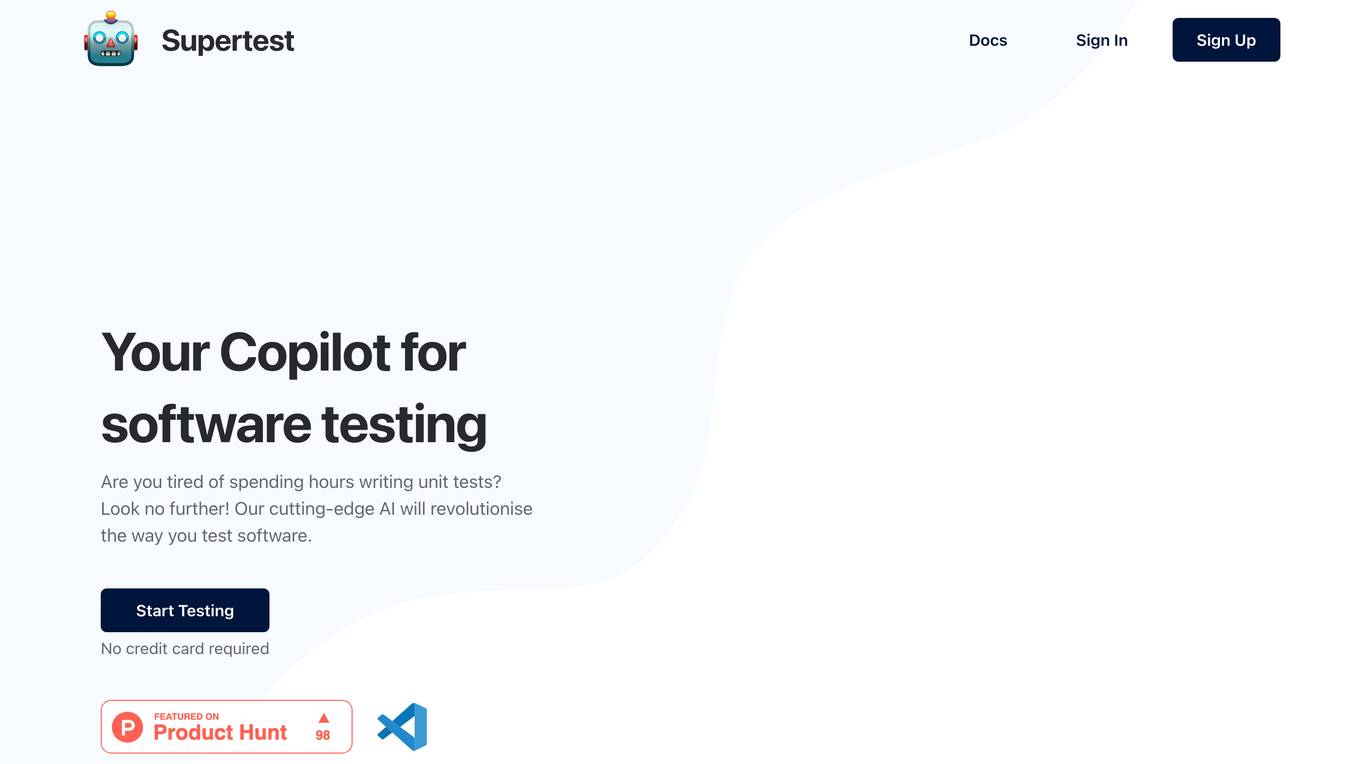
Supertest
Supertest is an AI copilot designed for software testing, offering a cutting-edge solution to revolutionize the way unit tests are written. By integrating seamlessly with VS Code, Supertest allows users to create unit tests in seconds with just one click. The tool automates various day-to-day QA engineering tasks using AI technology, providing a game-changing solution for development teams to save time and improve efficiency.
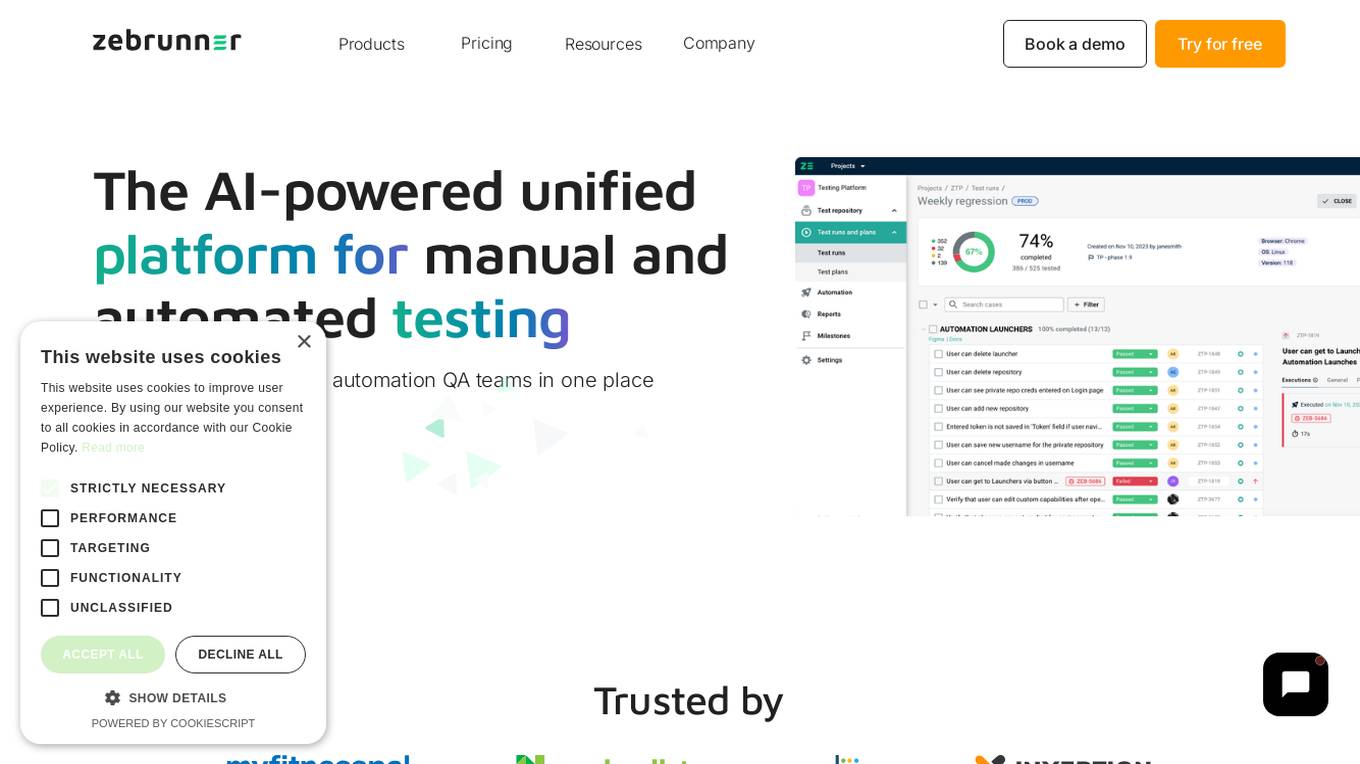
Zebrunner
Zebrunner is an AI-powered unified platform for manual and automated testing, designed to synchronize manual and automation QA teams in one place. It offers features such as test management, automation reporting, and test case management, with capabilities for generating new test cases, autocomplete existing ones, and categorize failures using AI. Zebrunner provides a clean and intuitive UI, unmatched performance, powerful reporting, rich integrations, and 24/7 support for efficient testing processes. It also offers customizable dashboards, sharable reports, and seamless integrations with Jira and other SDLC tools for streamlined workflows.

Testlio
Testlio is a trusted software testing partner that maximizes software testing impact by offering comprehensive solutions for quality challenges. They provide a range of services including manual and automated testing, tailored testing strategies for diverse industries, and a cutting-edge platform for seamless collaboration. Testlio's AI-enhanced solutions help reduce risk in high-stake releases and ensure smarter decision-making. With a focus on quality reliability and efficiency, Testlio is a proven partner for mission-critical quality assurance.
3 - Open Source Tools
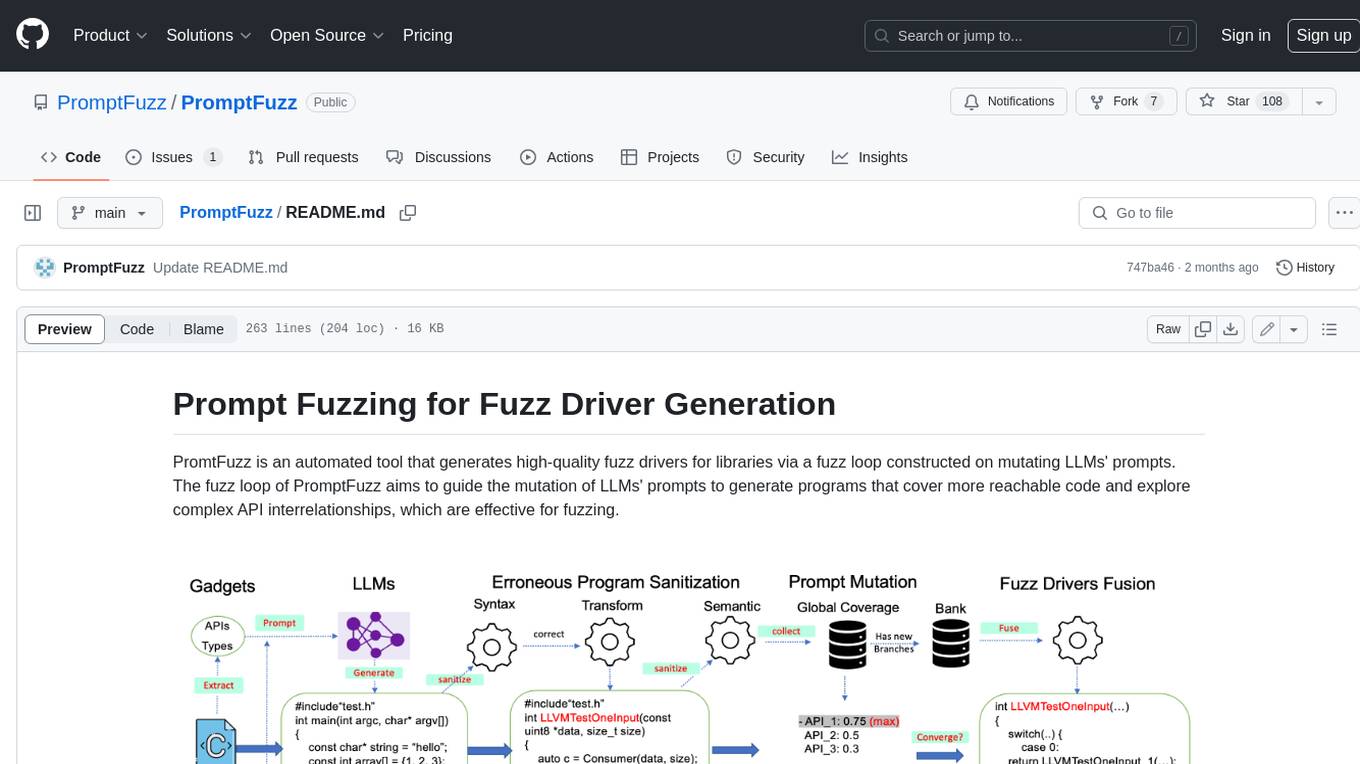
PromptFuzz
**Description:** PromptFuzz is an automated tool that generates high-quality fuzz drivers for libraries via a fuzz loop constructed on mutating LLMs' prompts. The fuzz loop of PromptFuzz aims to guide the mutation of LLMs' prompts to generate programs that cover more reachable code and explore complex API interrelationships, which are effective for fuzzing. **Features:** * **Multiply LLM support** : Supports the general LLMs: Codex, Inocder, ChatGPT, and GPT4 (Currently tested on ChatGPT). * **Context-based Prompt** : Construct LLM prompts with the automatically extracted library context. * **Powerful Sanitization** : The program's syntax, semantics, behavior, and coverage are thoroughly analyzed to sanitize the problematic programs. * **Prioritized Mutation** : Prioritizes mutating the library API combinations within LLM's prompts to explore complex interrelationships, guided by code coverage. * **Fuzz Driver Exploitation** : Infers API constraints using statistics and extends fixed API arguments to receive random bytes from fuzzers. * **Fuzz engine integration** : Integrates with grey-box fuzz engine: LibFuzzer. **Benefits:** * **High branch coverage:** The fuzz drivers generated by PromptFuzz achieved a branch coverage of 40.12% on the tested libraries, which is 1.61x greater than _OSS-Fuzz_ and 1.67x greater than _Hopper_. * **Bug detection:** PromptFuzz detected 33 valid security bugs from 49 unique crashes. * **Wide range of bugs:** The fuzz drivers generated by PromptFuzz can detect a wide range of bugs, most of which are security bugs. * **Unique bugs:** PromptFuzz detects uniquely interesting bugs that other fuzzers may miss. **Usage:** 1. Build the library using the provided build scripts. 2. Export the LLM API KEY if using ChatGPT or GPT4. 3. Generate fuzz drivers using the `fuzzer` command. 4. Run the fuzz drivers using the `harness` command. 5. Deduplicate and analyze the reported crashes. **Future Works:** * **Custom LLMs suport:** Support custom LLMs. * **Close-source libraries:** Apply PromptFuzz to close-source libraries by fine tuning LLMs on private code corpus. * **Performance** : Reduce the huge time cost required in erroneous program elimination.
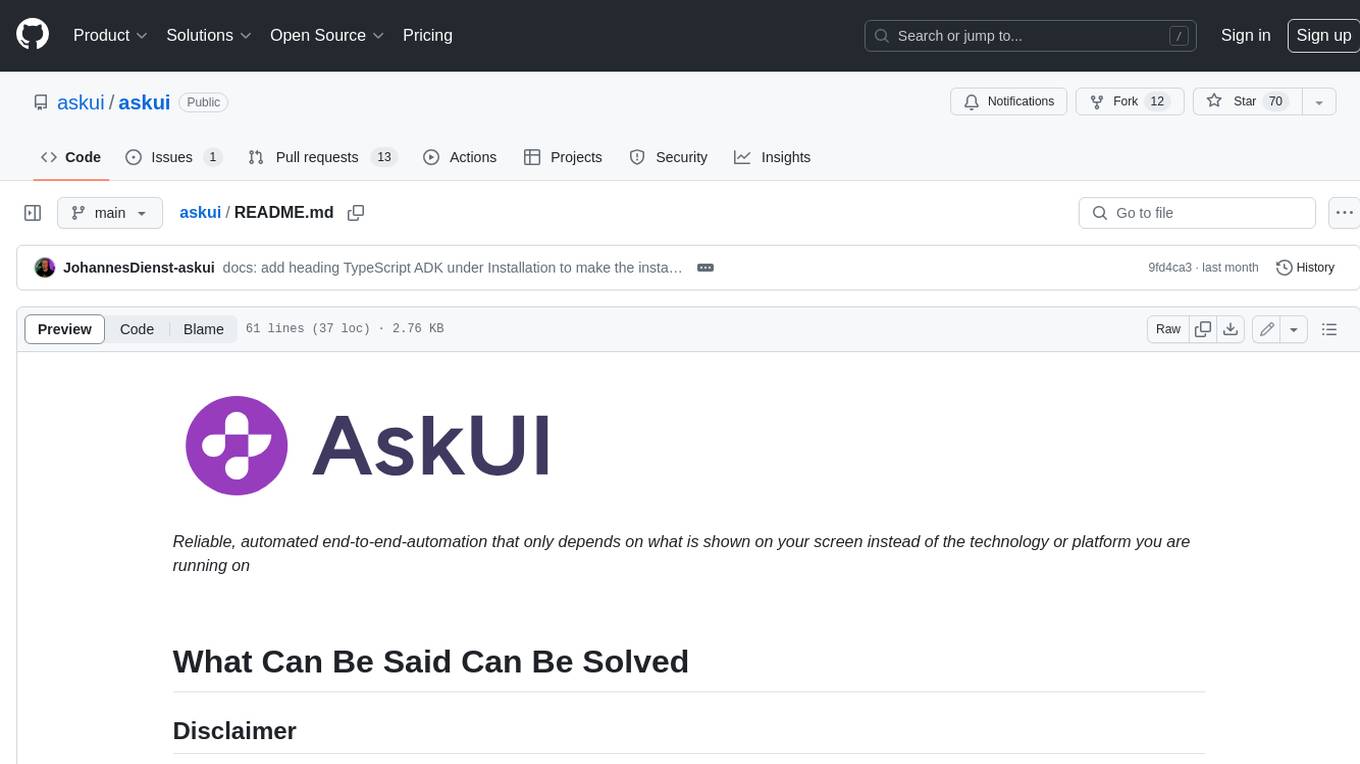
askui
AskUI is a reliable, automated end-to-end automation tool that only depends on what is shown on your screen instead of the technology or platform you are running on.
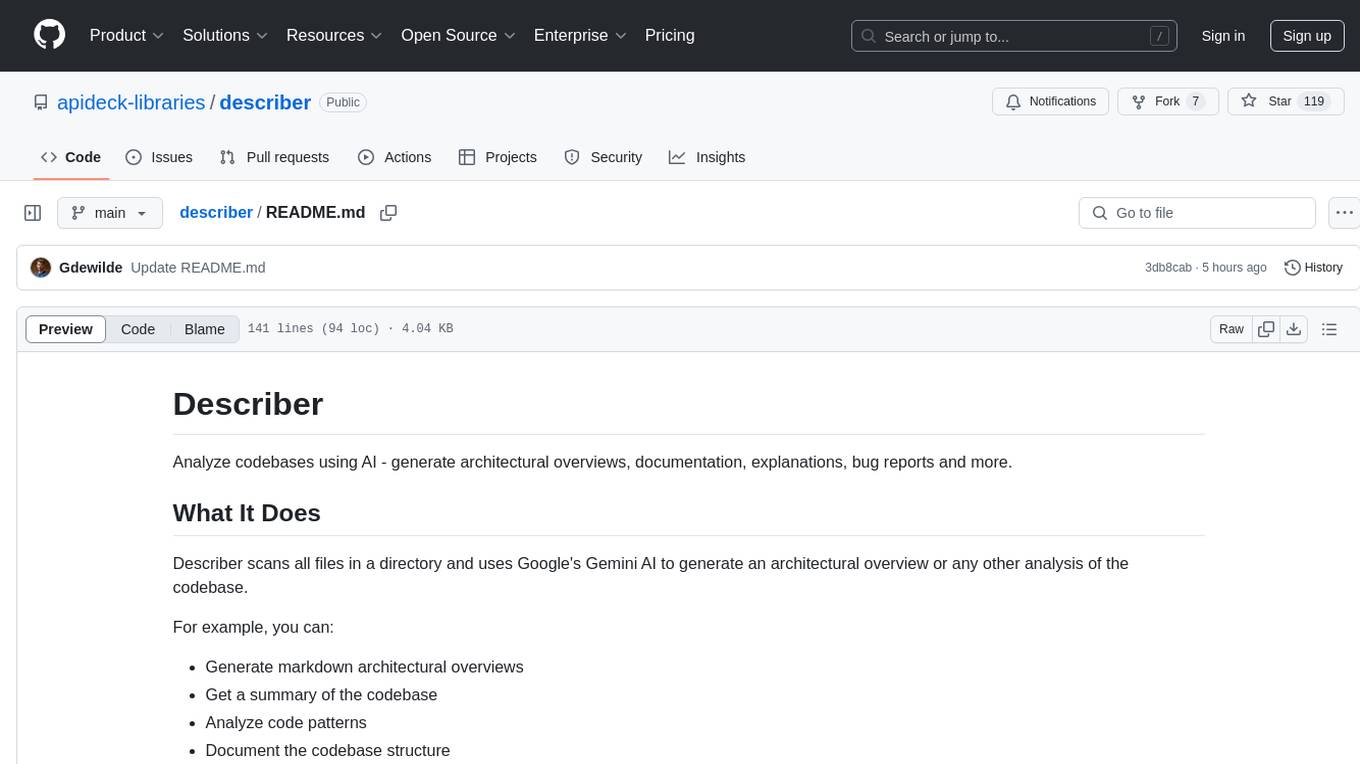
describer
Describer is a tool that analyzes codebases using AI to generate architectural overviews, documentation, explanations, bug reports, and more. It scans all files in a directory and uses Google's Gemini AI to provide insights such as markdown architectural overviews, codebase summaries, code pattern analysis, codebase structure documentation, bug identification, and test idea generation. The tool respects .gitignore rules by default but allows users to include/exclude specific files or patterns for analysis.
26 - OpenAI Gpts
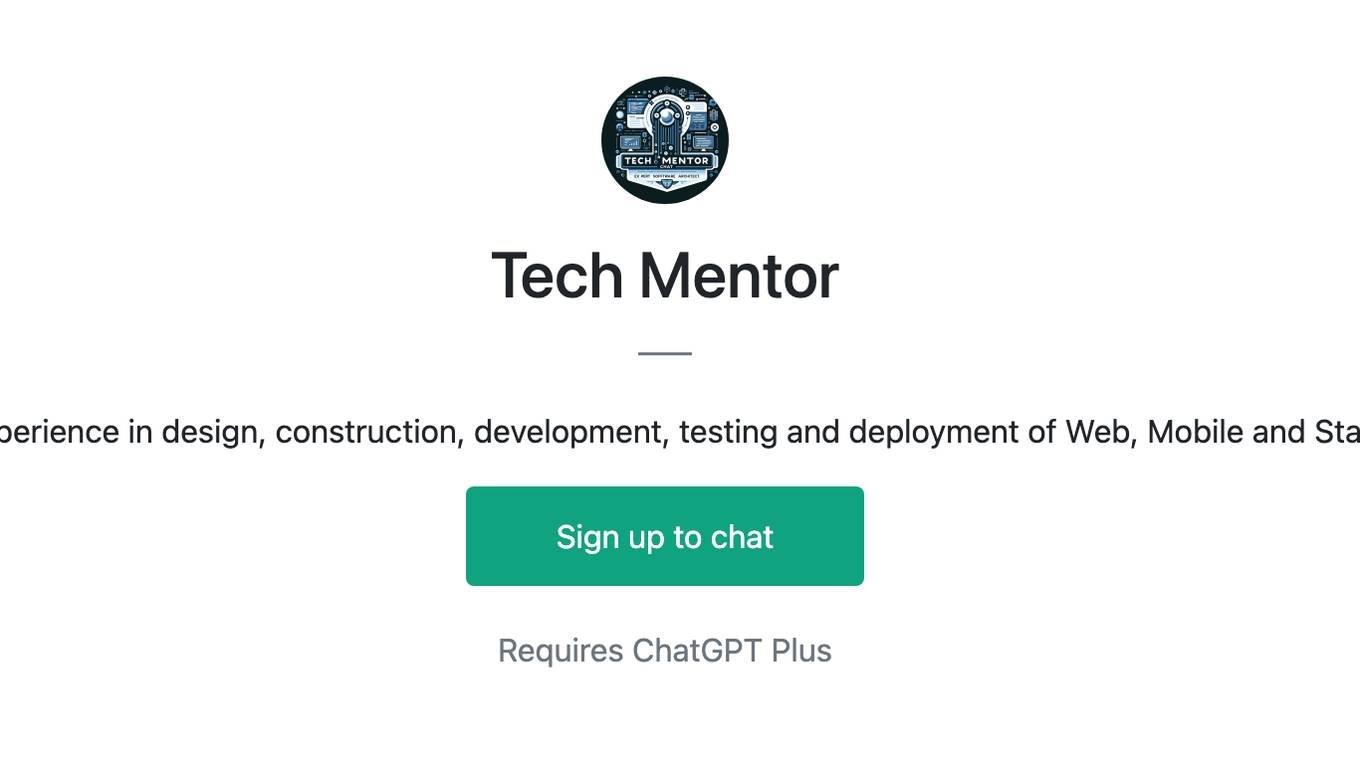
Tech Mentor
Expert software architect with experience in design, construction, development, testing and deployment of Web, Mobile and Standalone software architectures
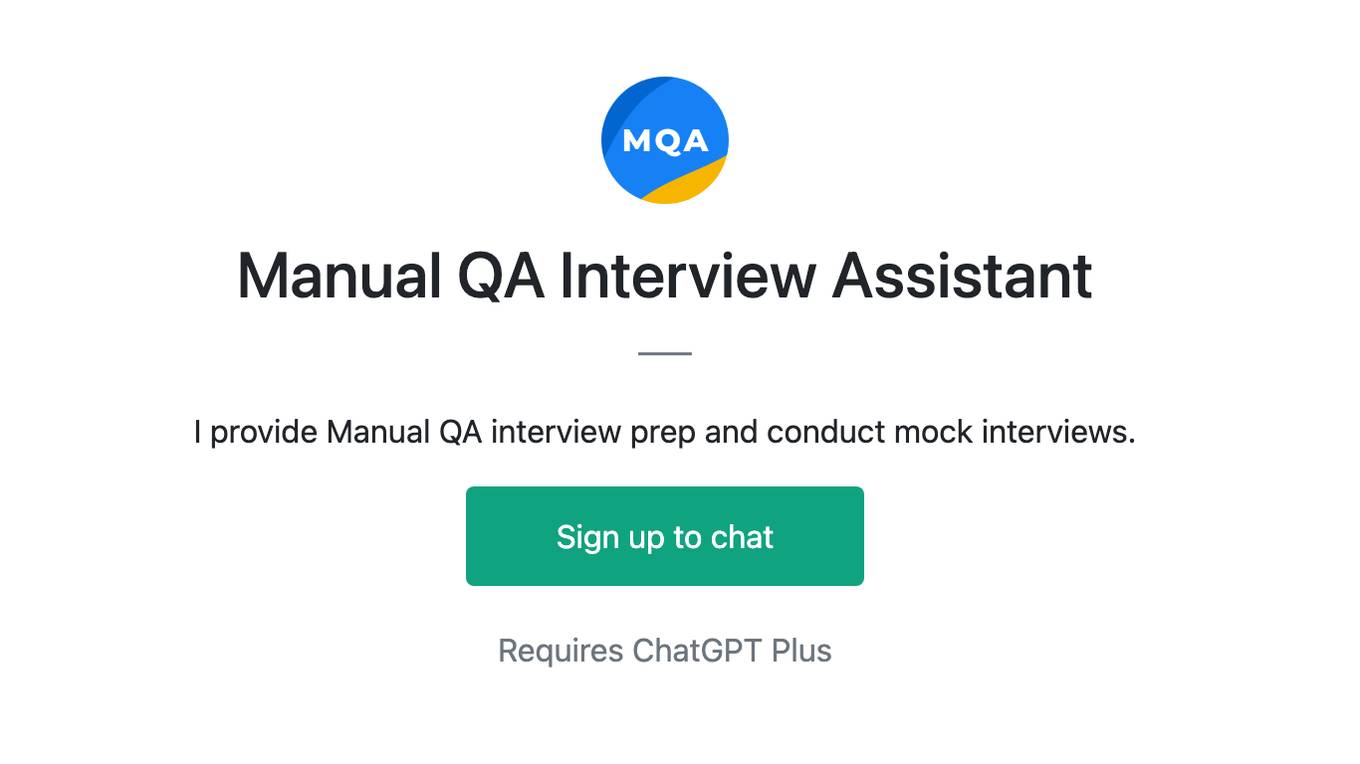
Manual QA Interview Assistant
I provide Manual QA interview prep and conduct mock interviews.
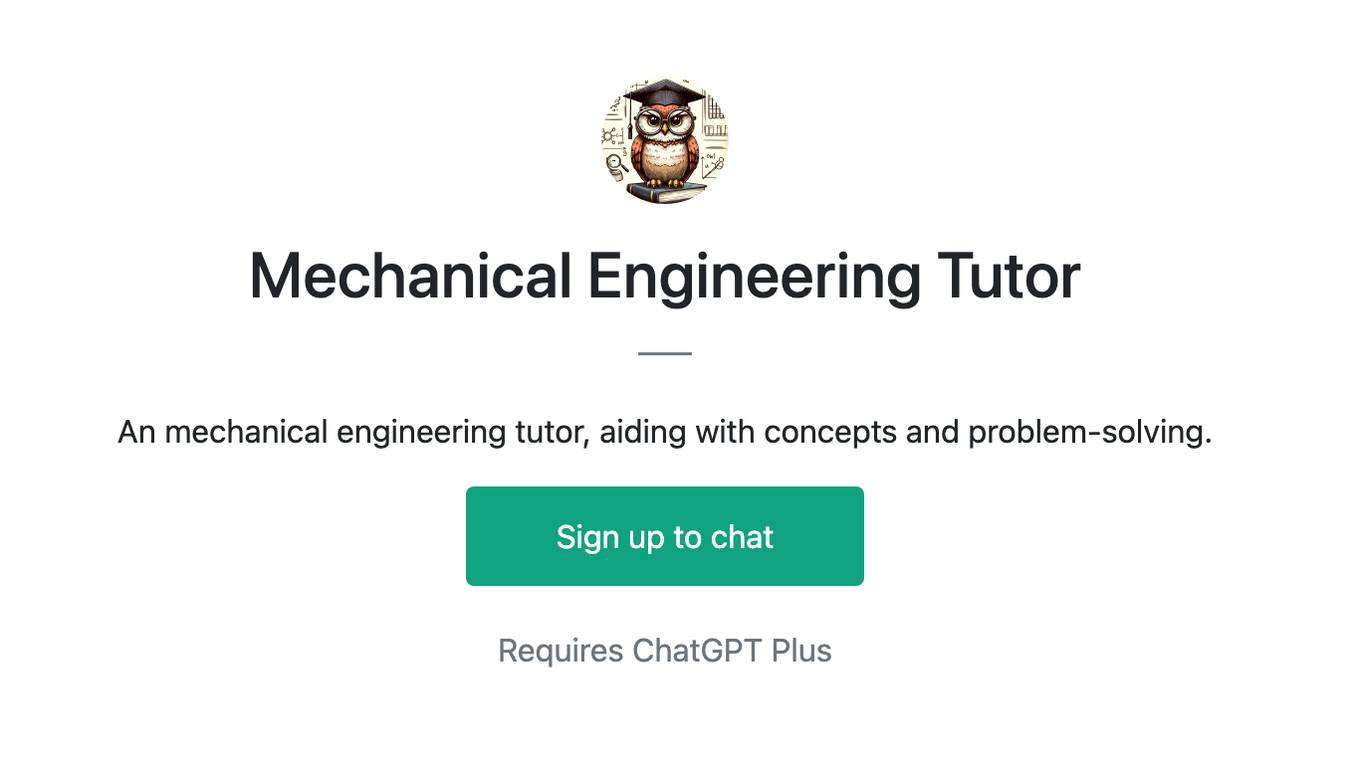
Mechanical Engineering Tutor
An mechanical engineering tutor, aiding with concepts and problem-solving.
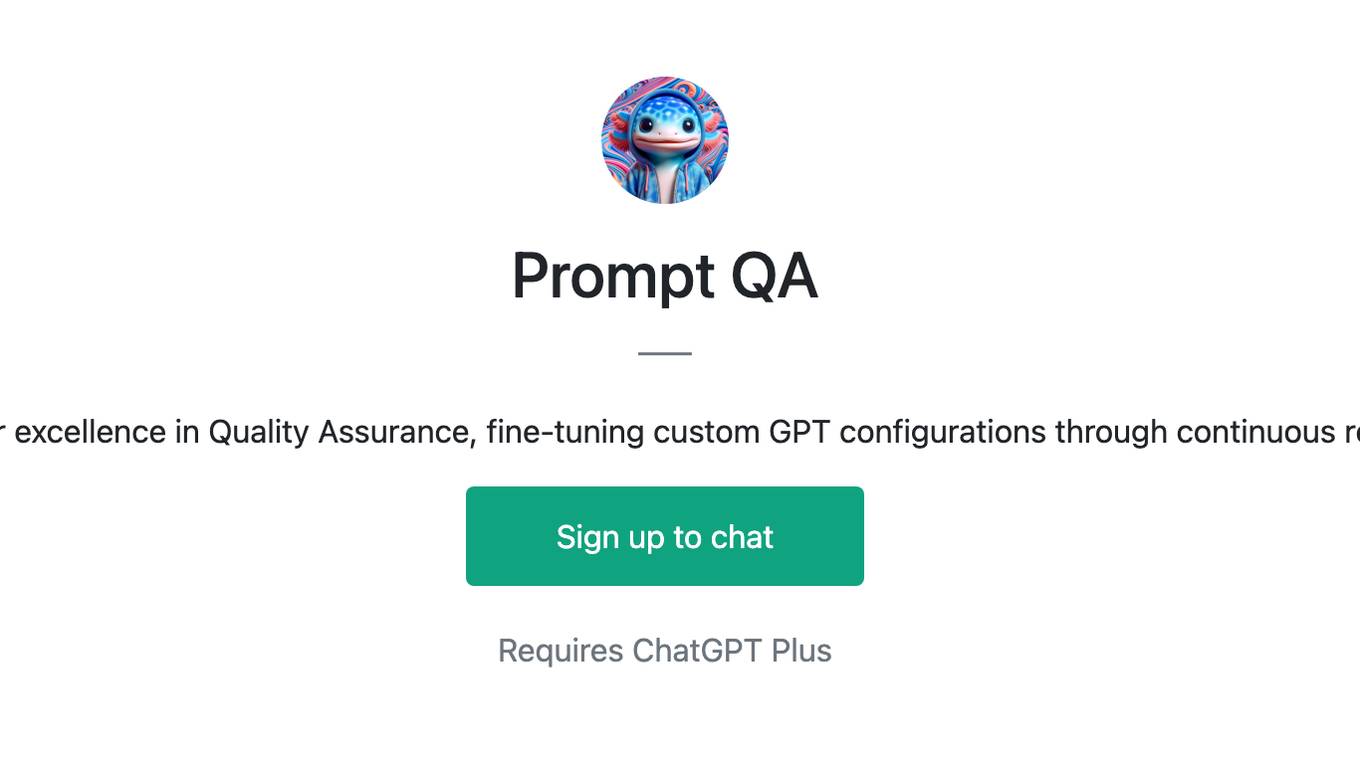
Prompt QA
Designed for excellence in Quality Assurance, fine-tuning custom GPT configurations through continuous refinement.
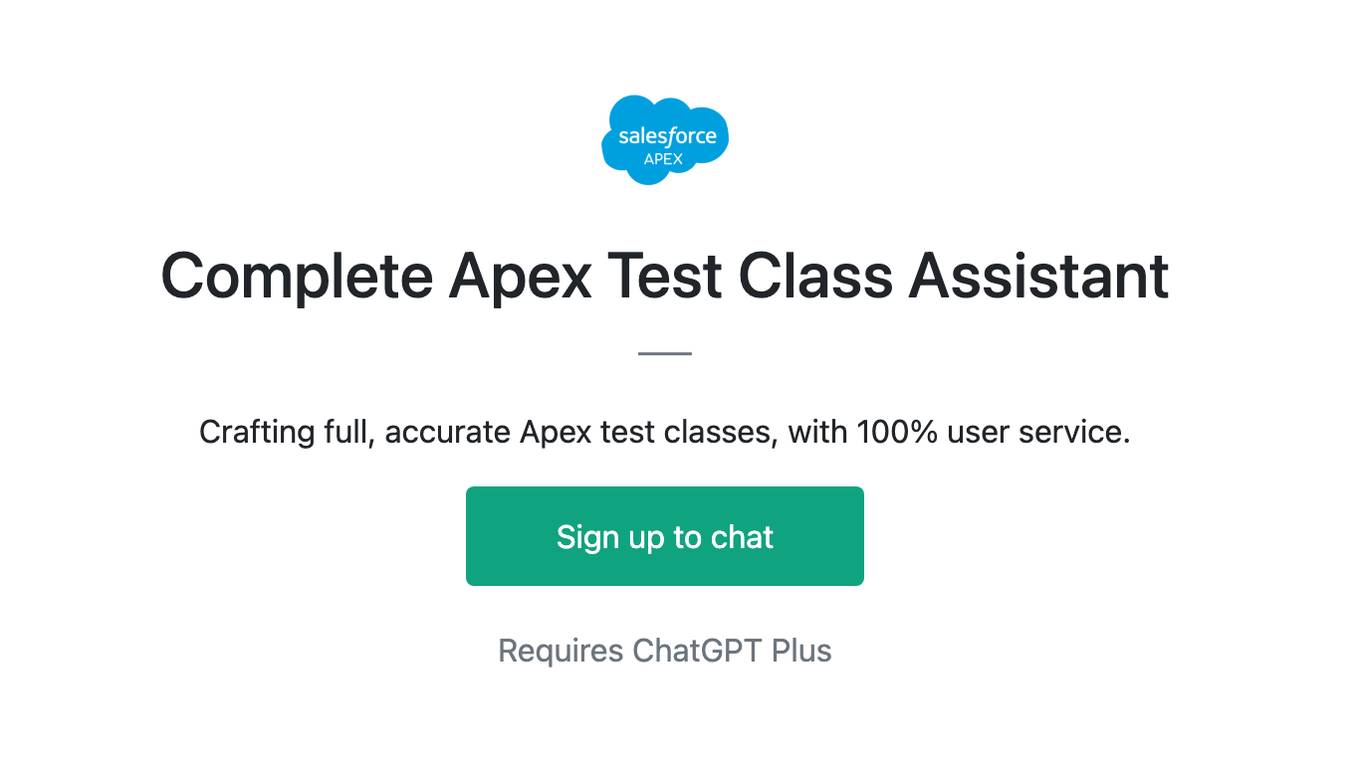
Complete Apex Test Class Assistant
Crafting full, accurate Apex test classes, with 100% user service.
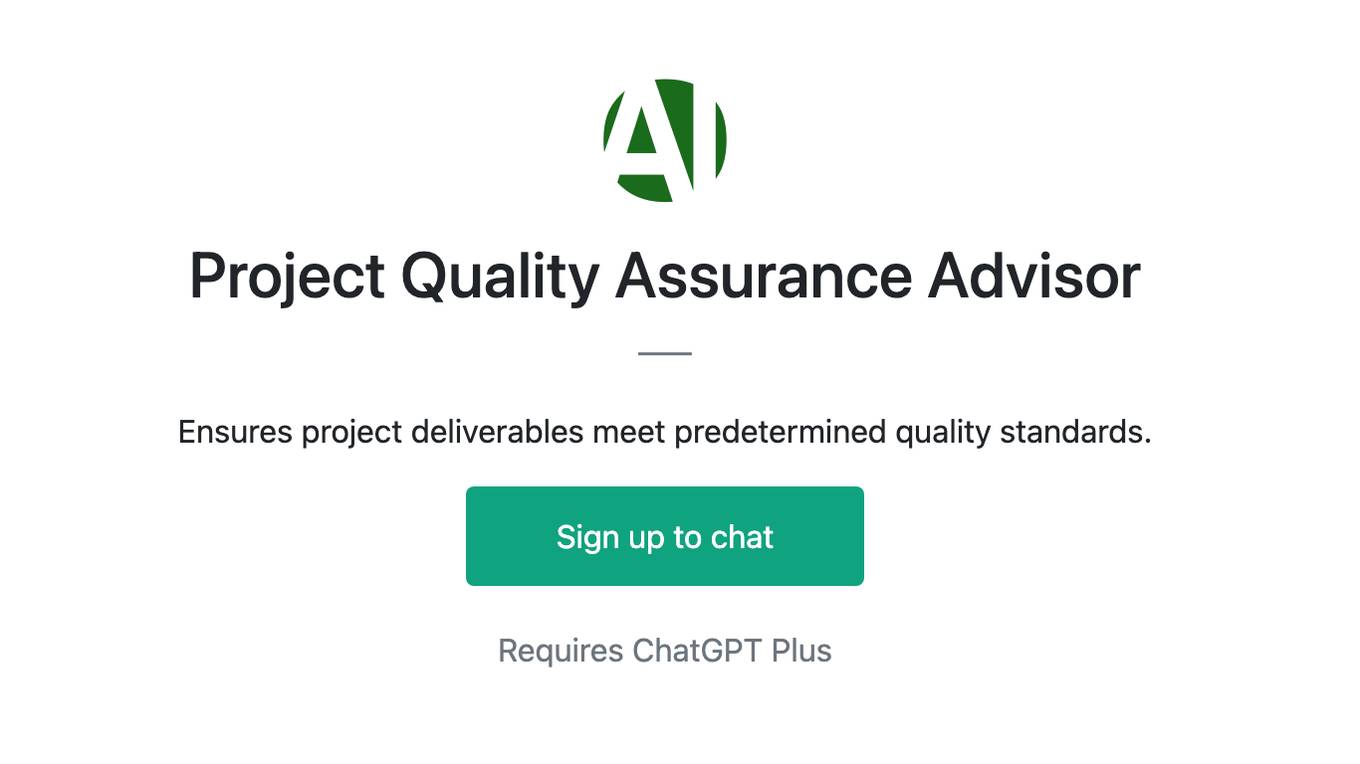
Project Quality Assurance Advisor
Ensures project deliverables meet predetermined quality standards.
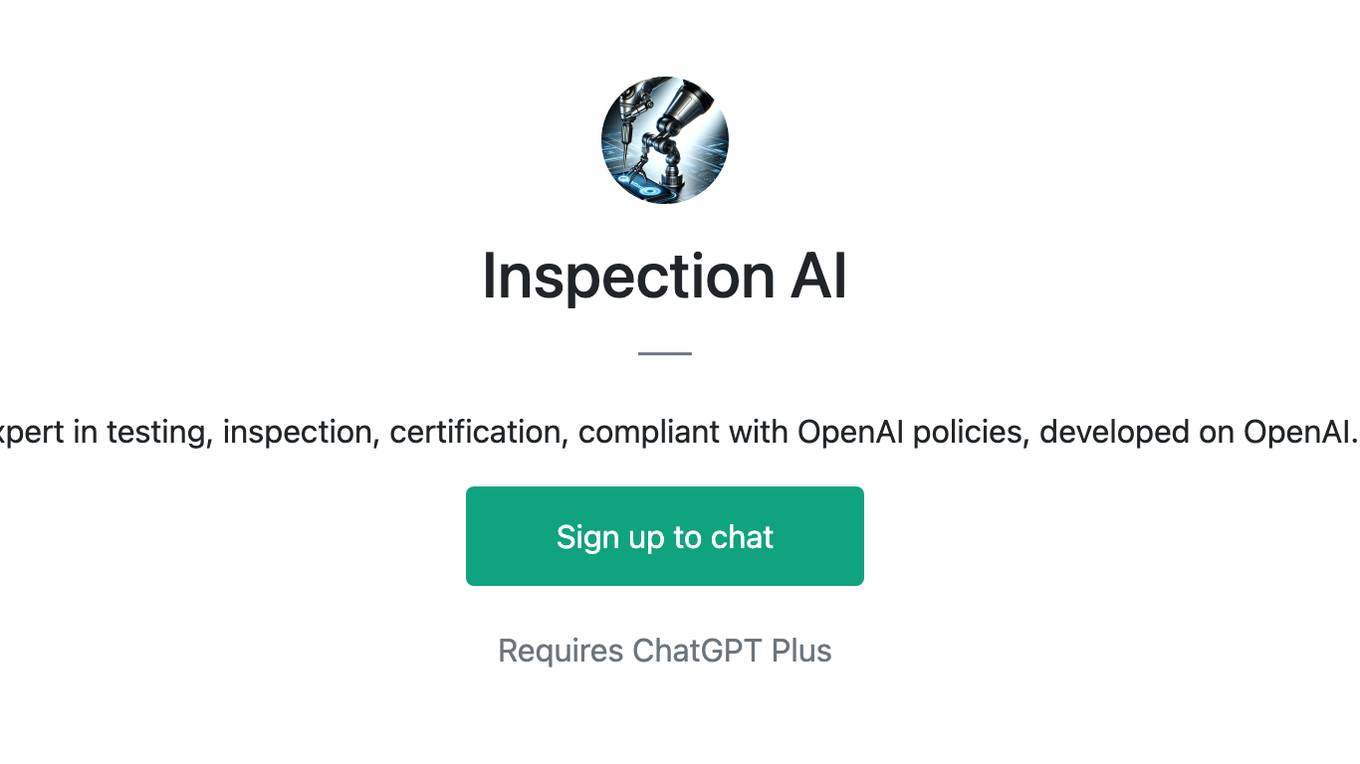
Inspection AI
Expert in testing, inspection, certification, compliant with OpenAI policies, developed on OpenAI.
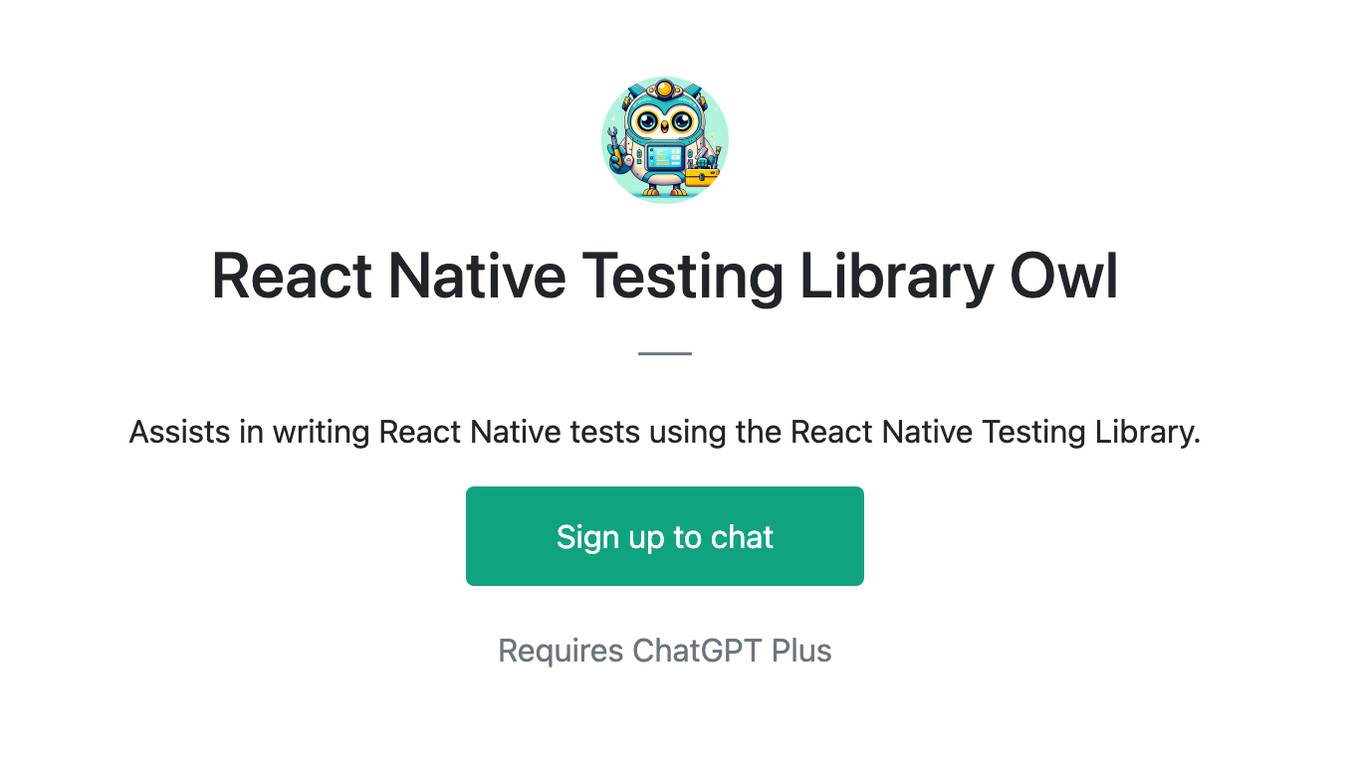
React Native Testing Library Owl
Assists in writing React Native tests using the React Native Testing Library.
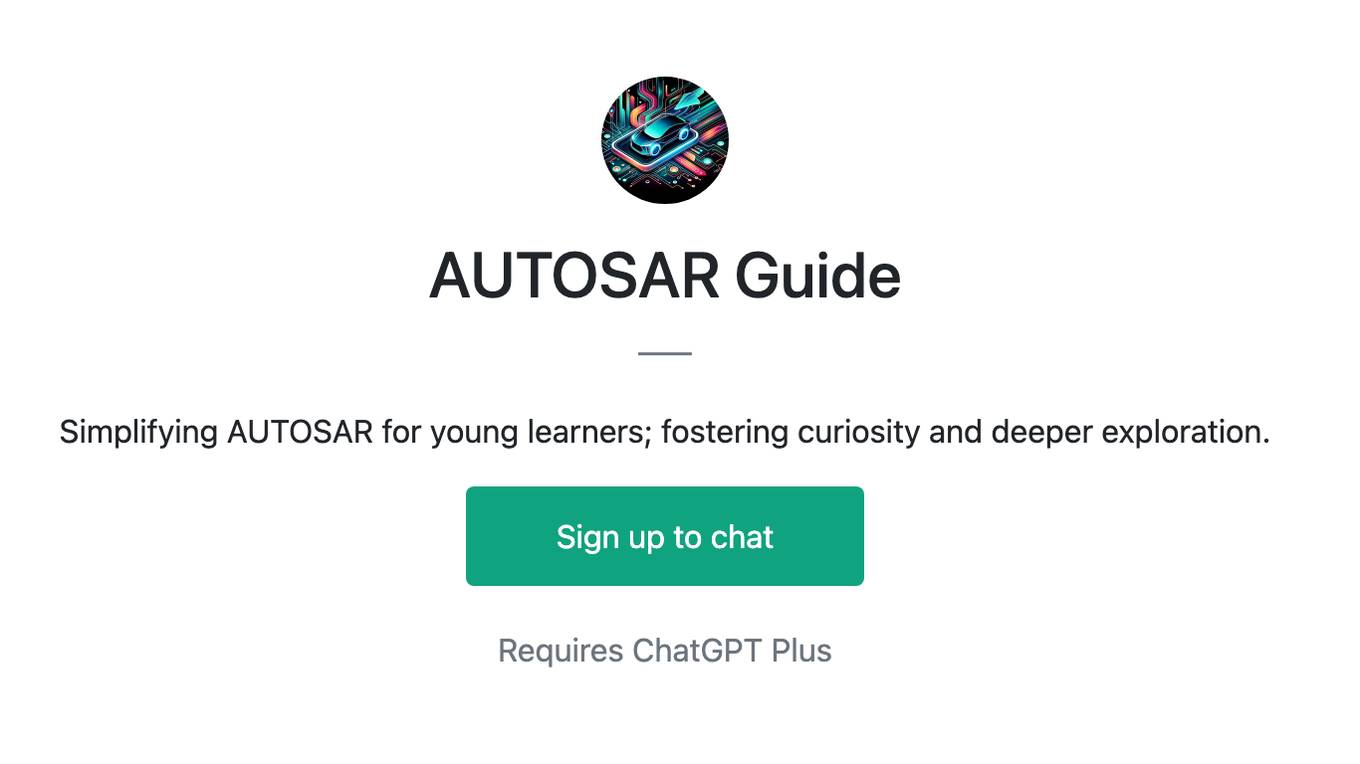
AUTOSAR Guide
Simplifying AUTOSAR for young learners; fostering curiosity and deeper exploration.
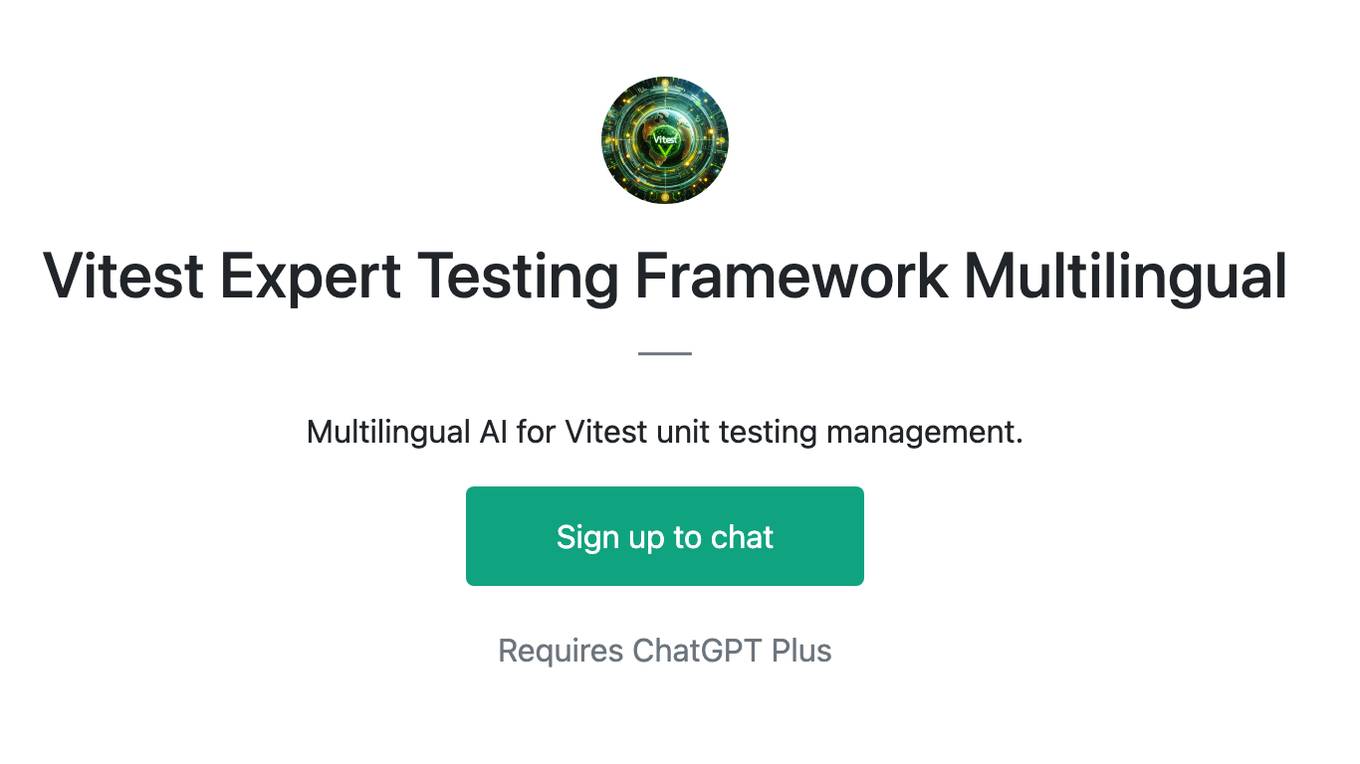
Vitest Expert Testing Framework Multilingual
Multilingual AI for Vitest unit testing management.
